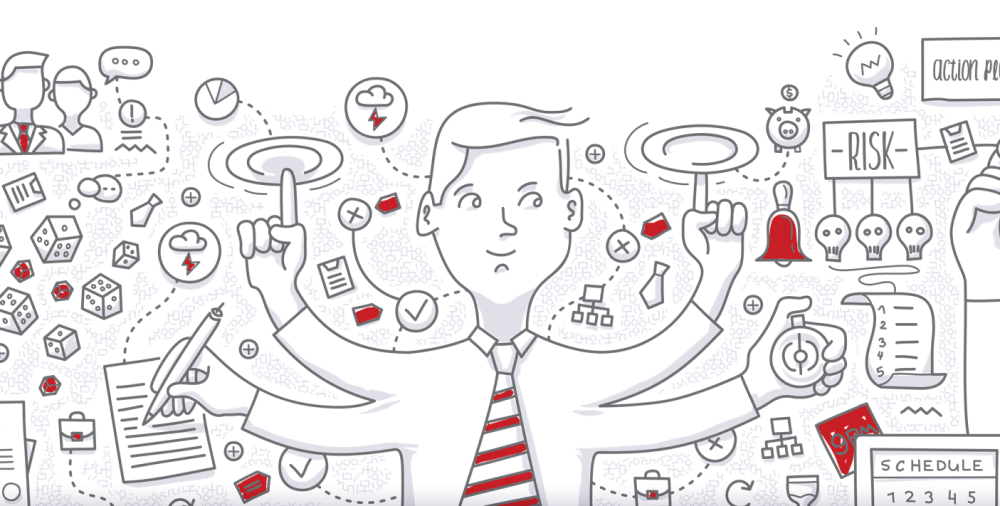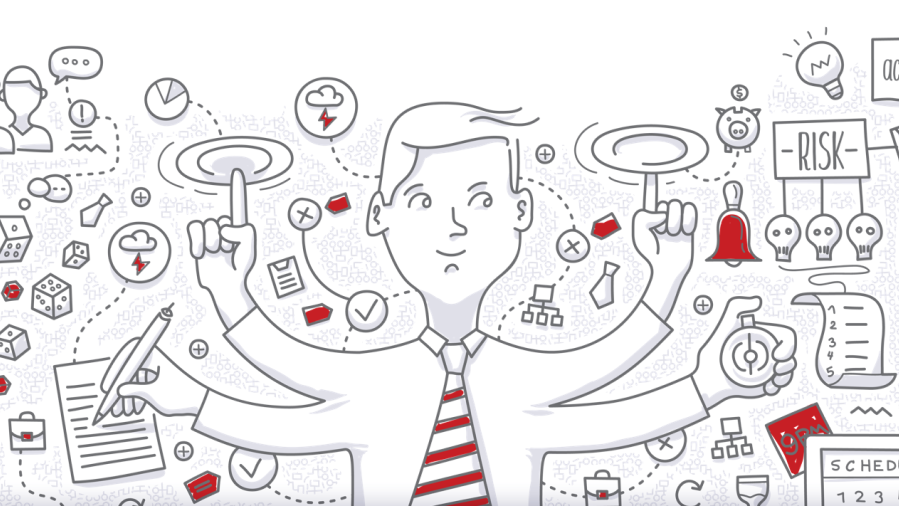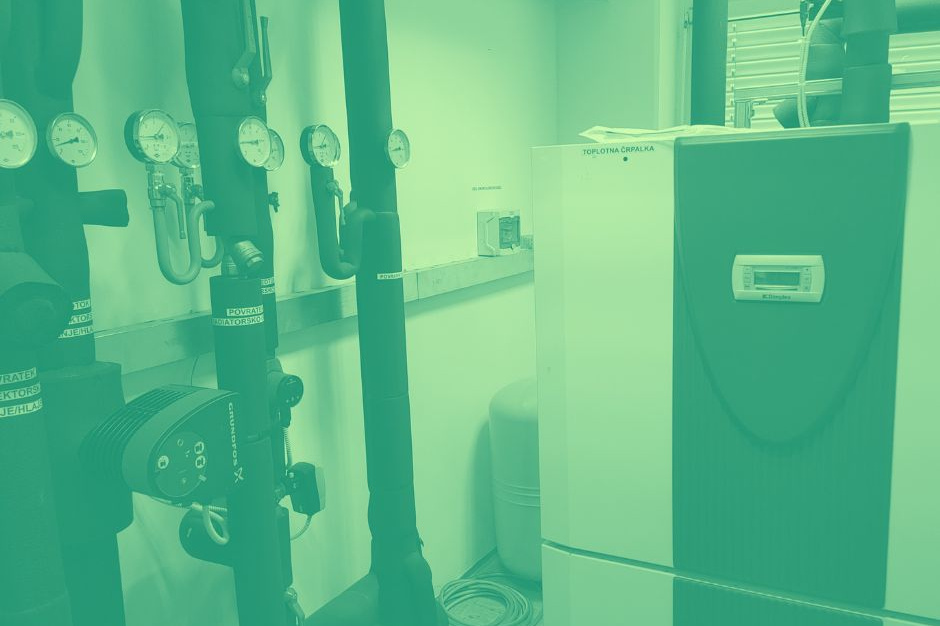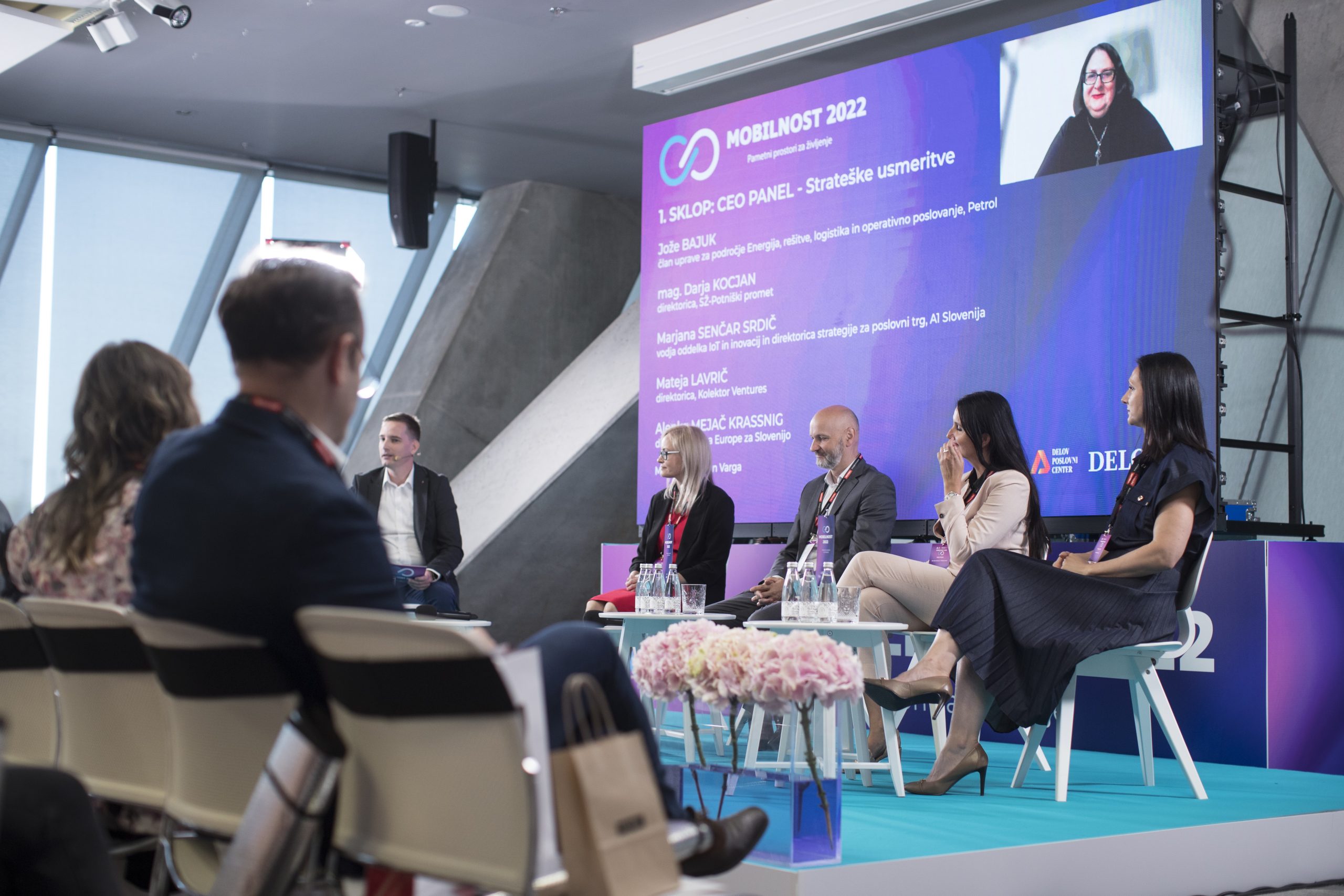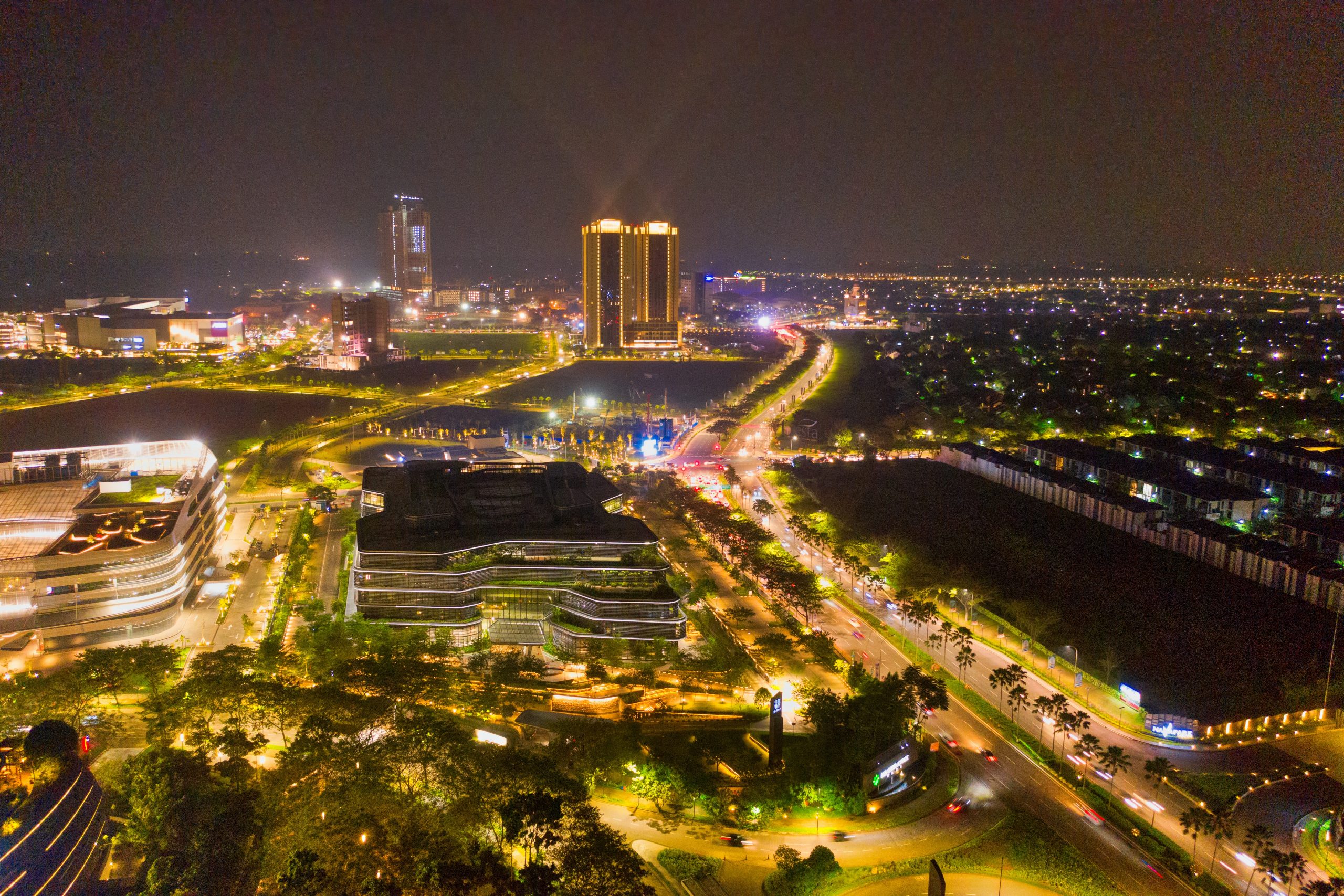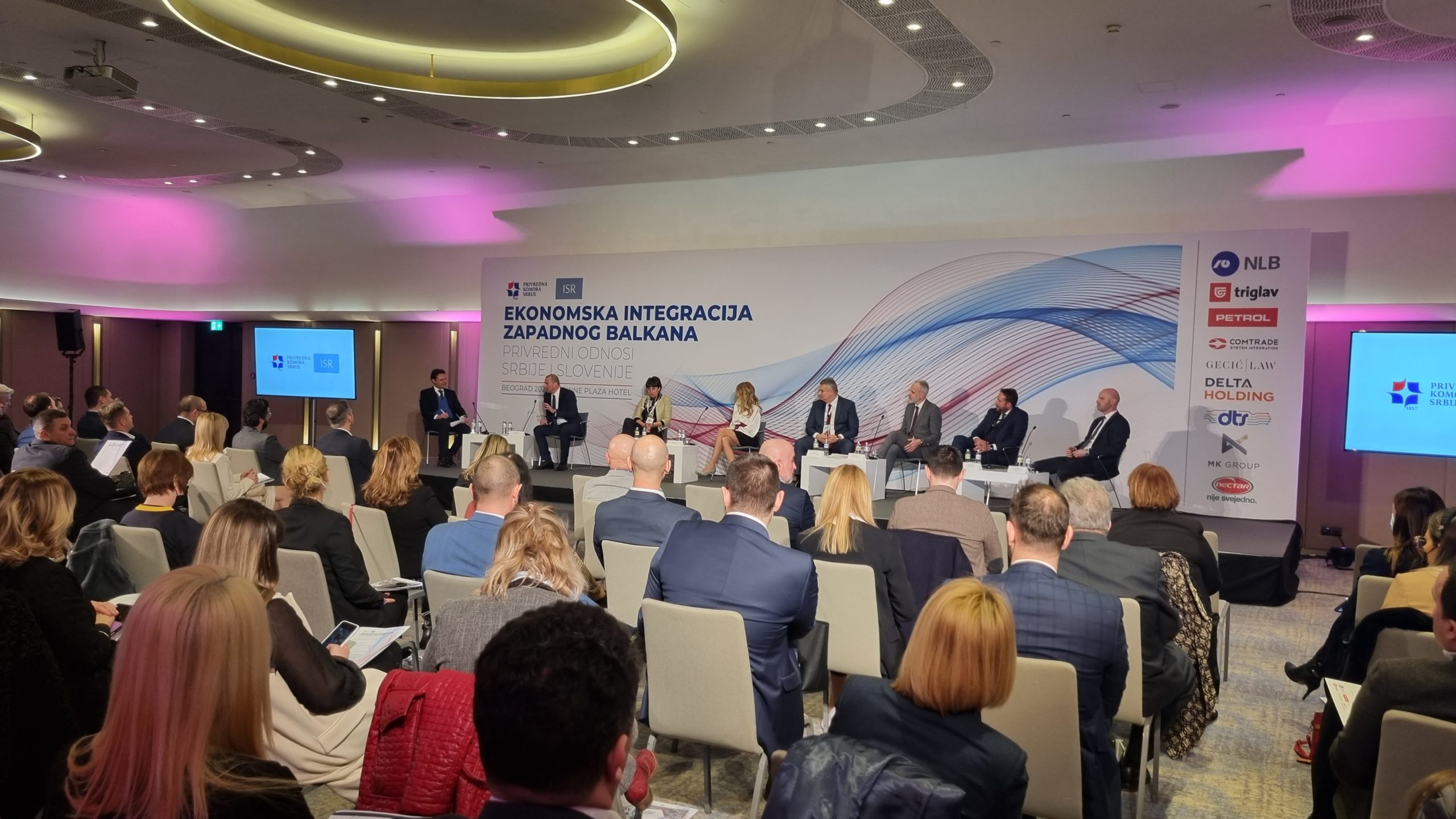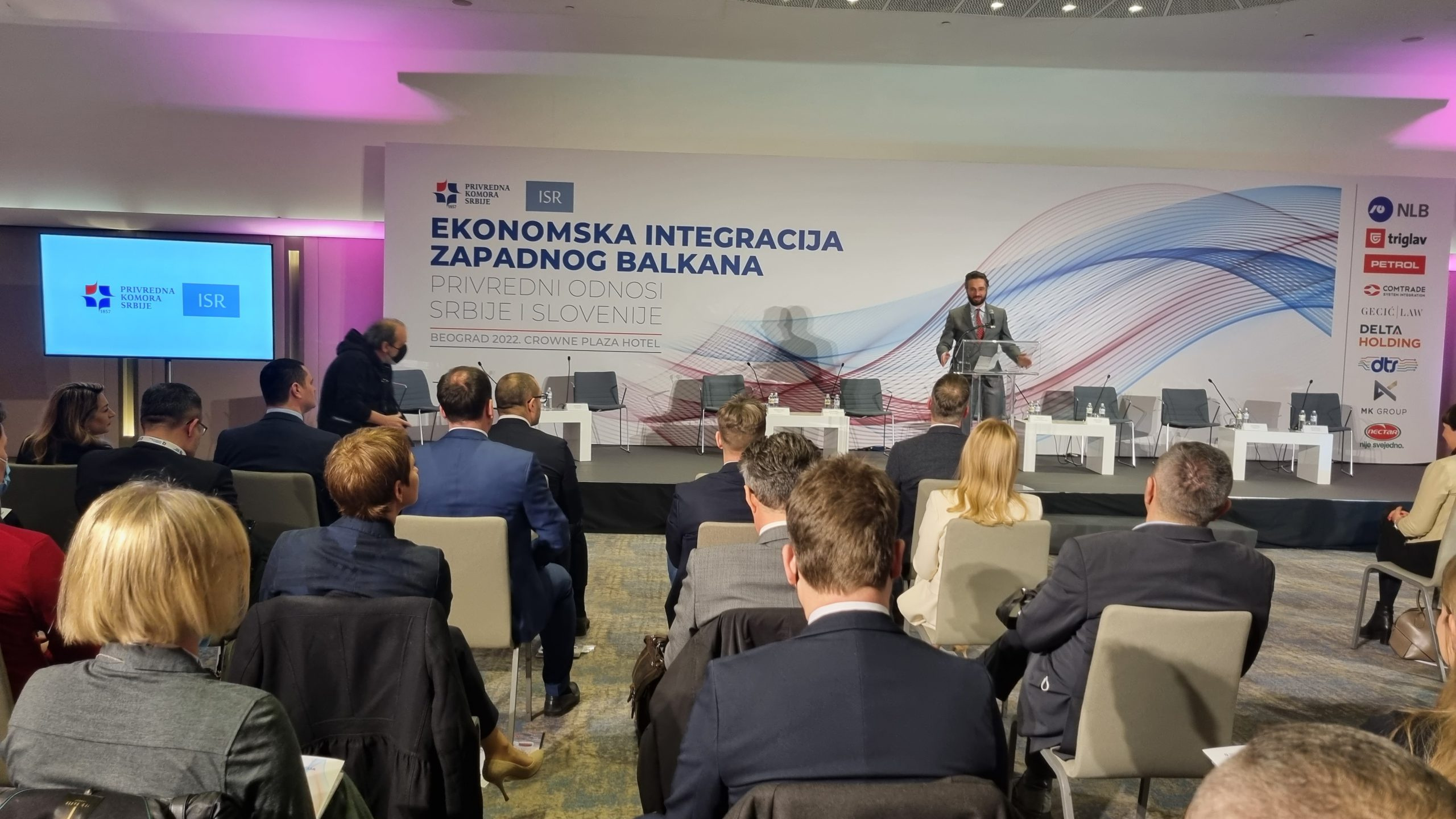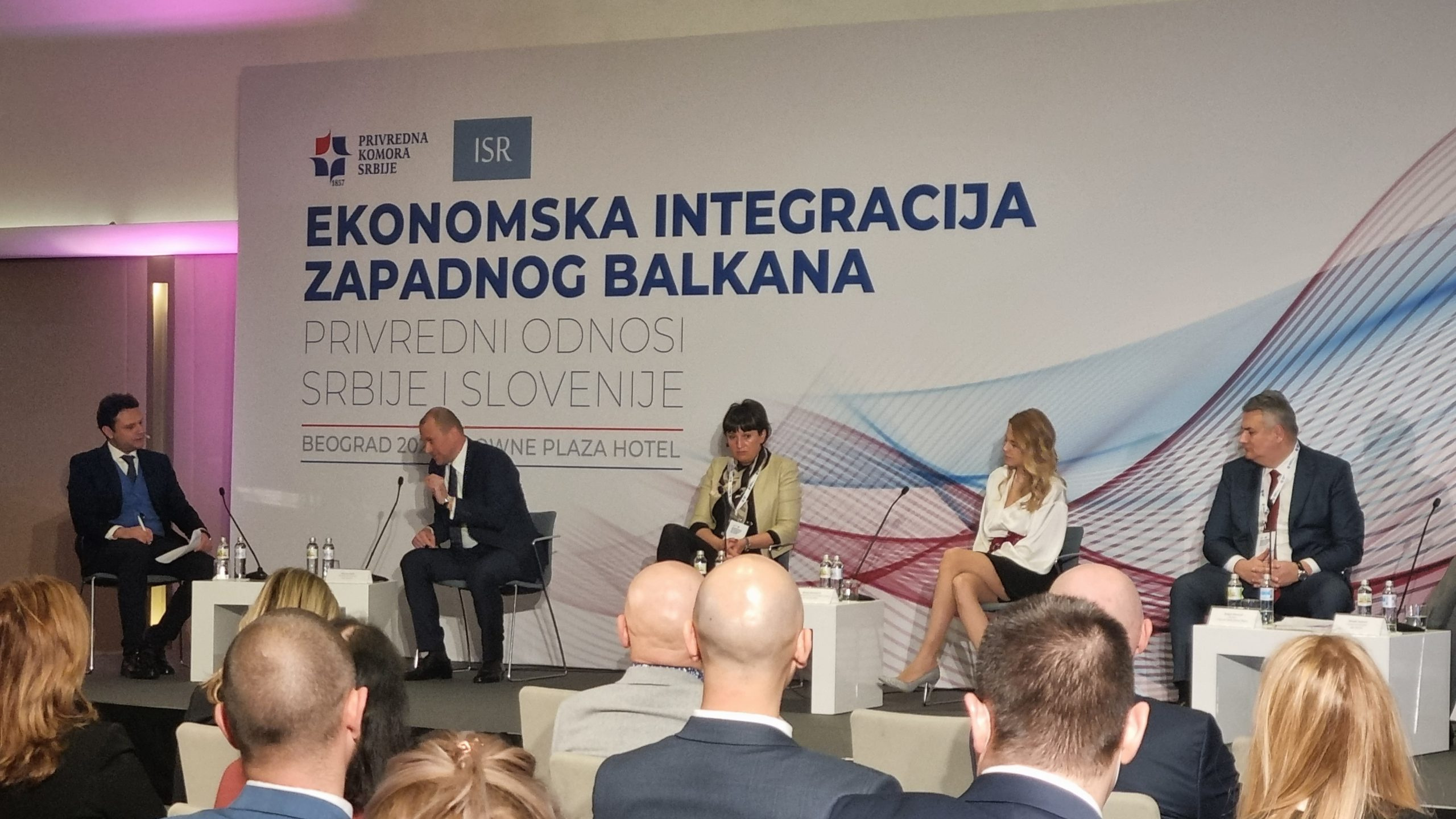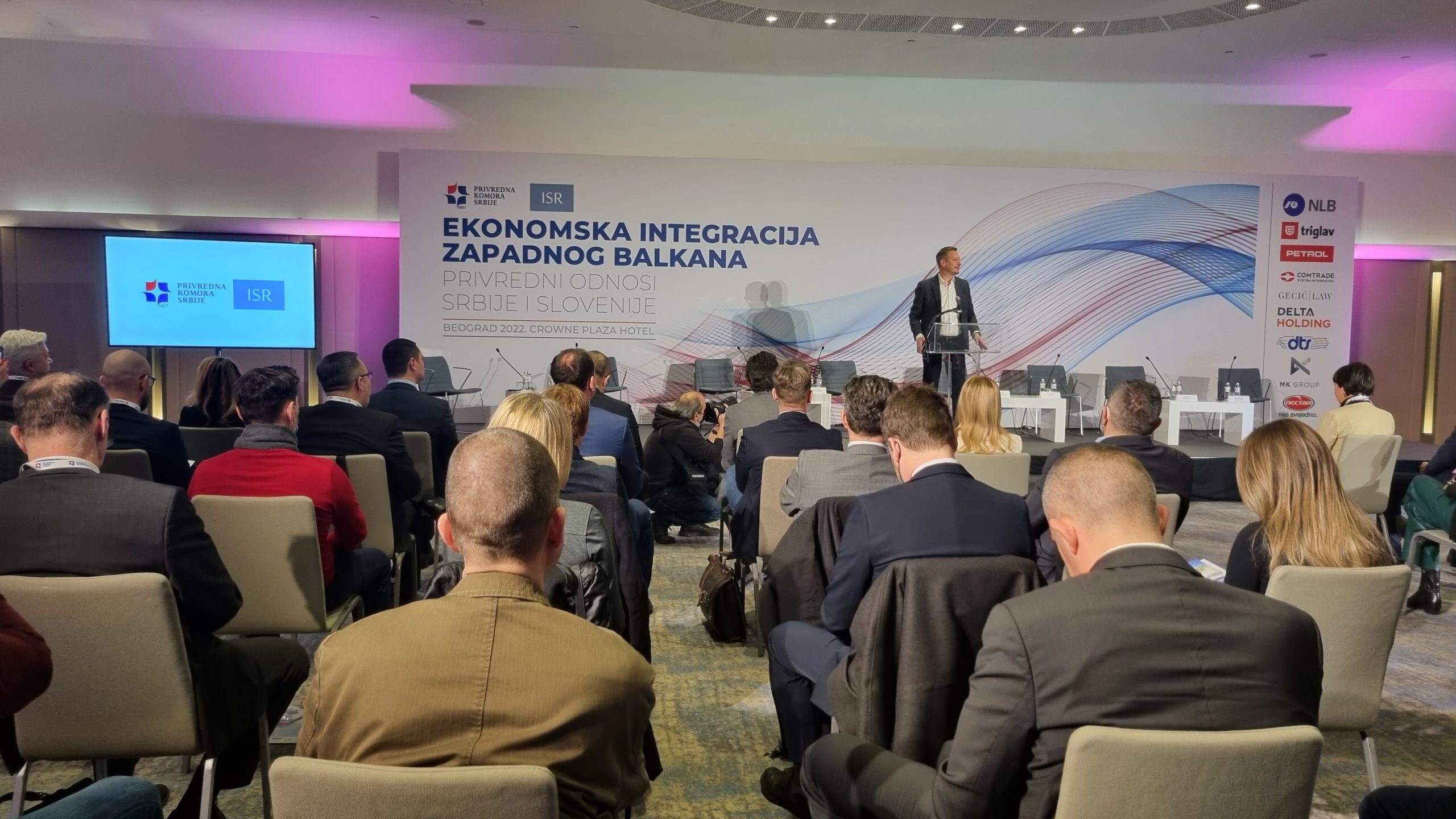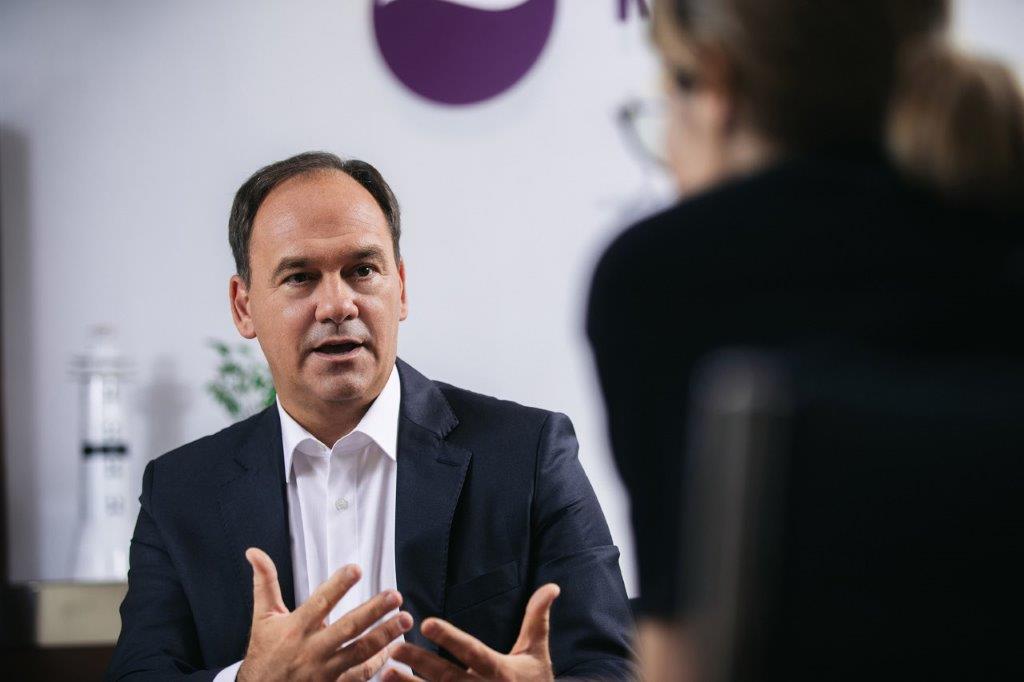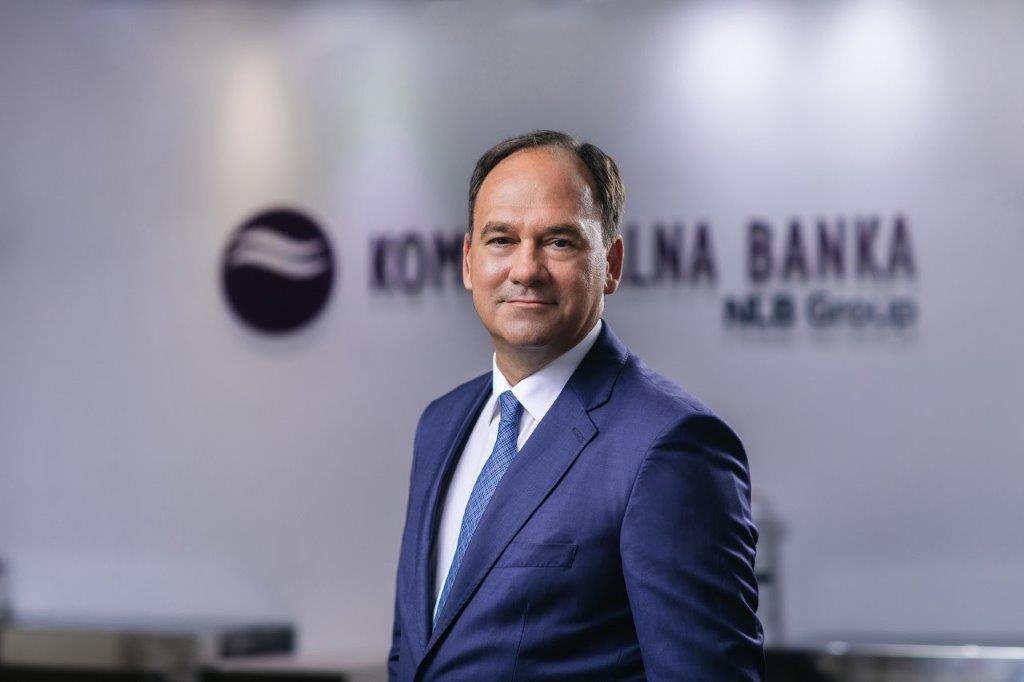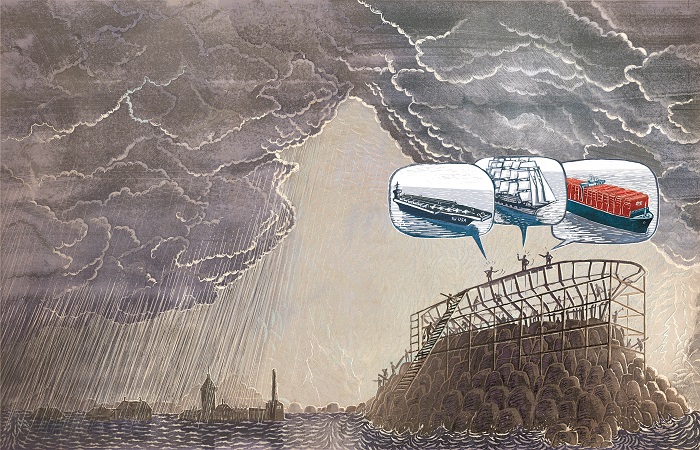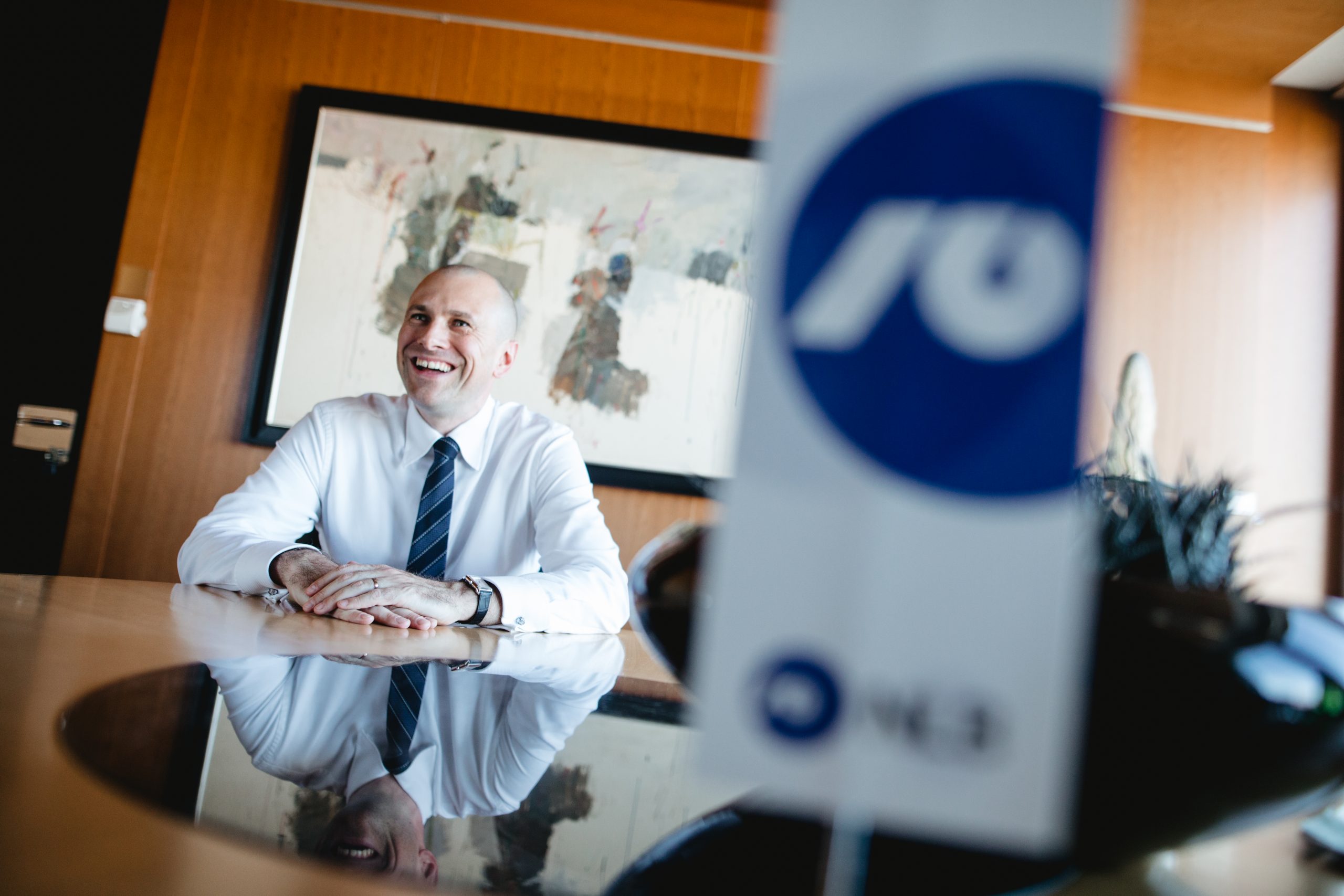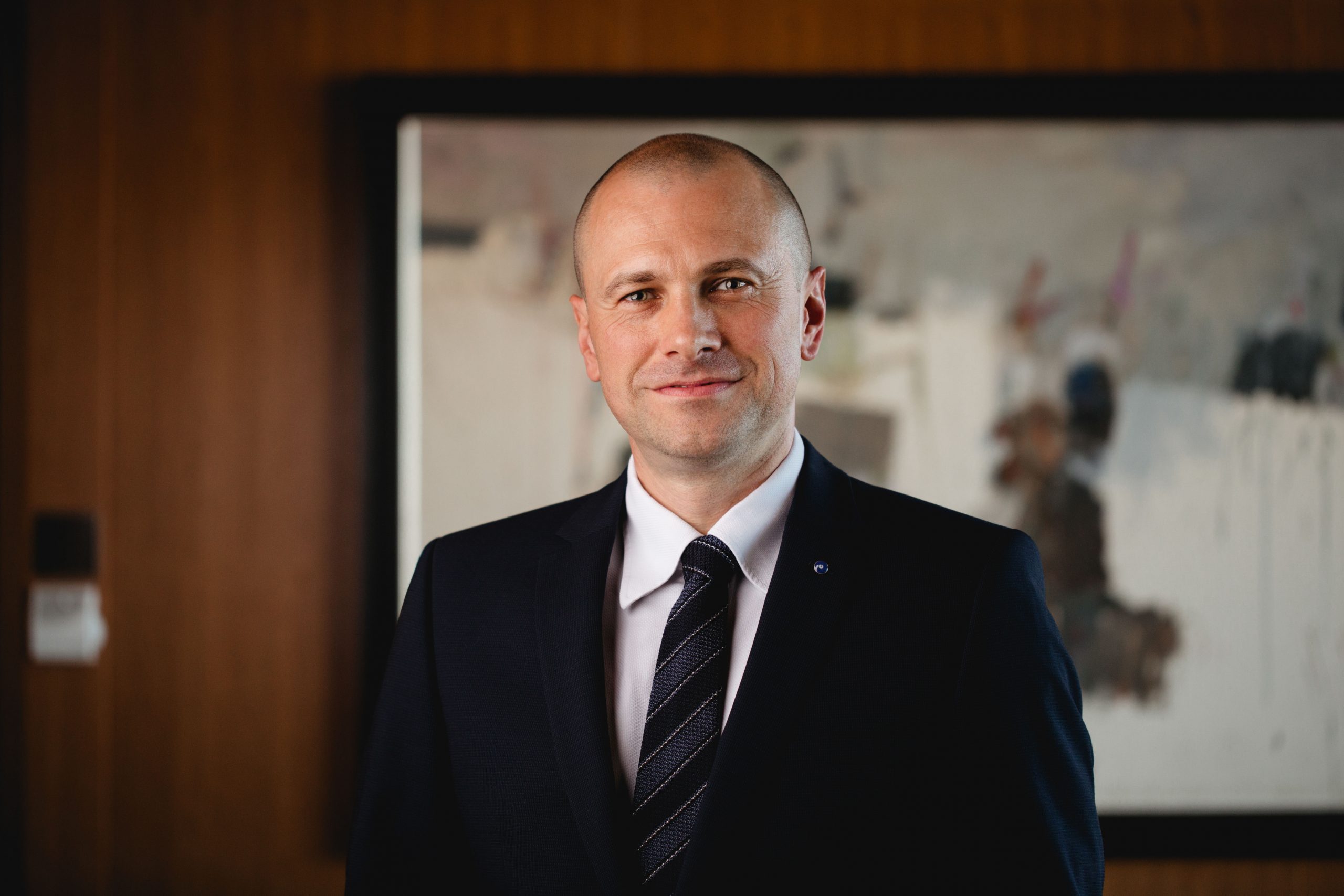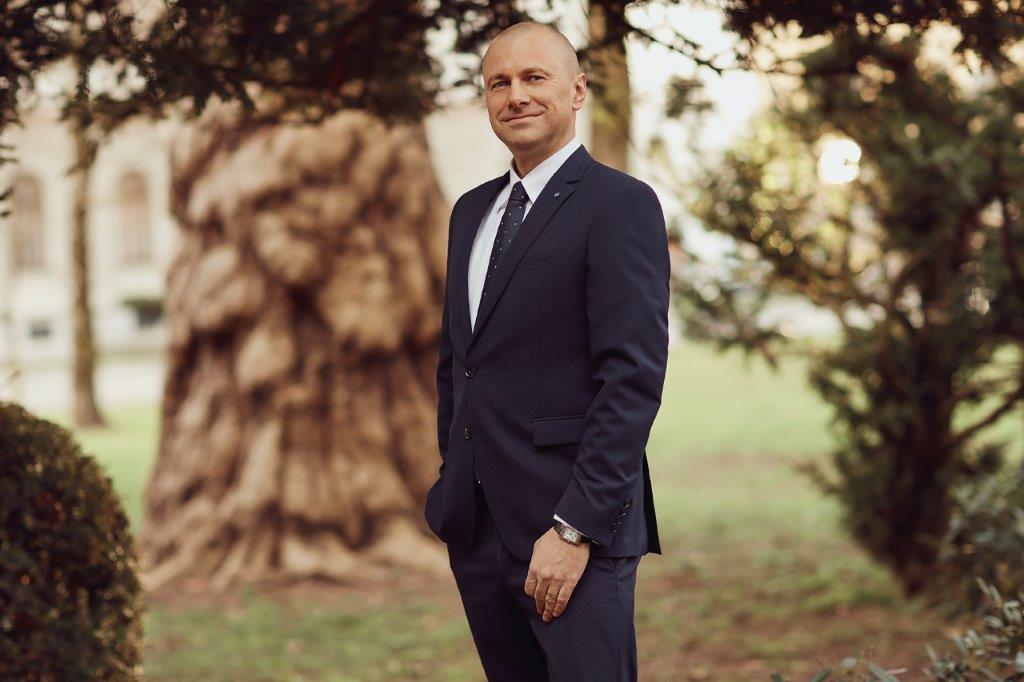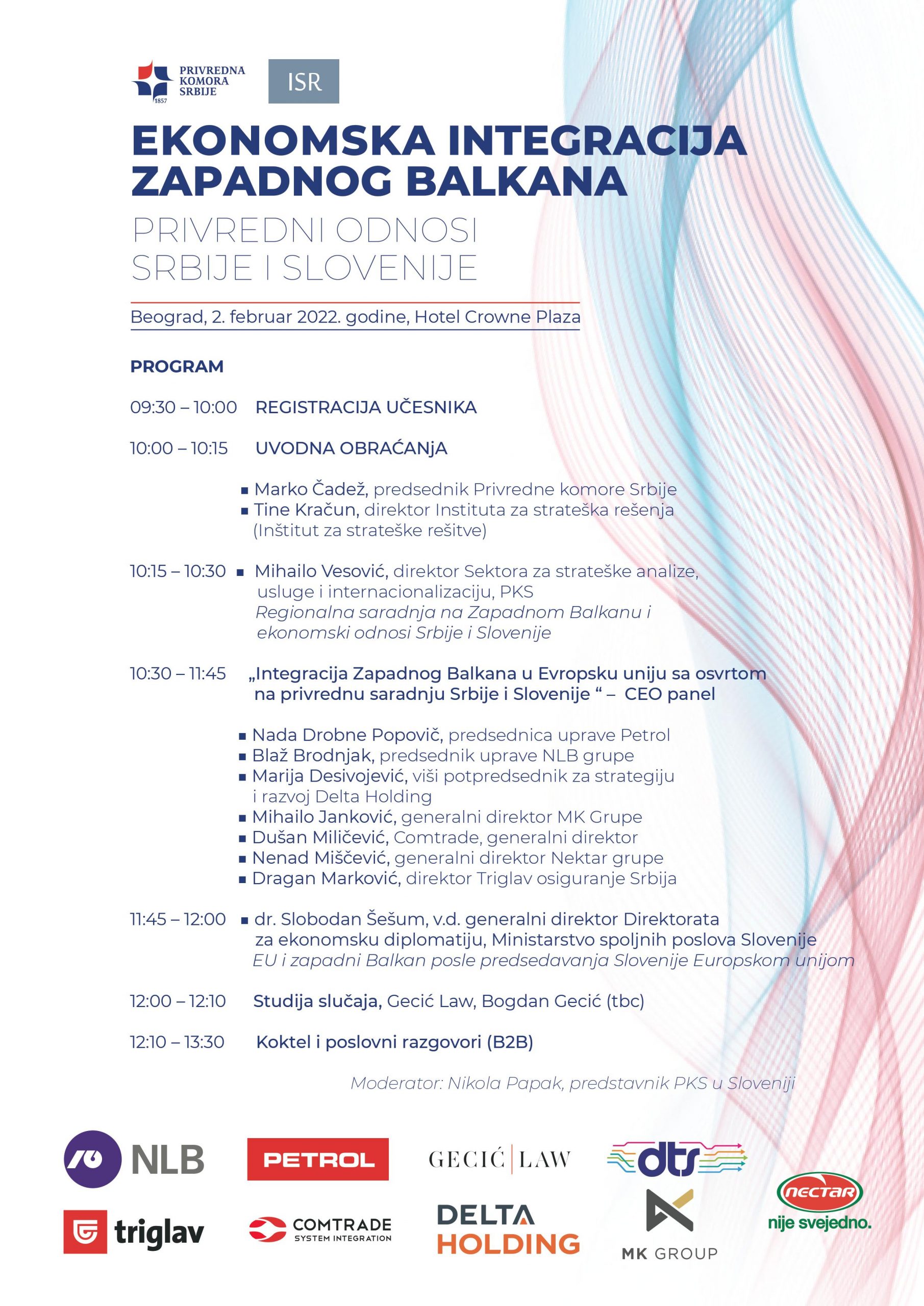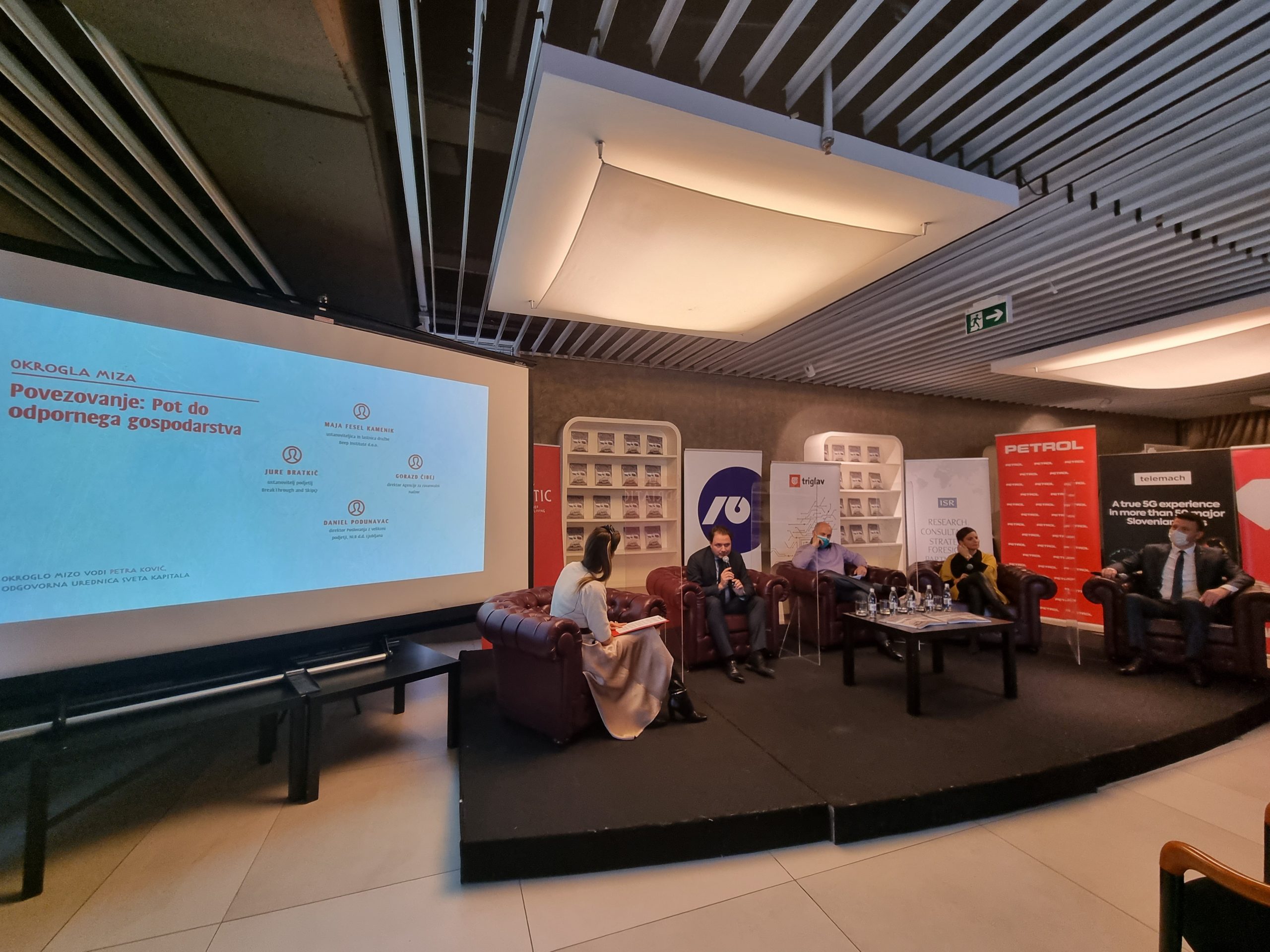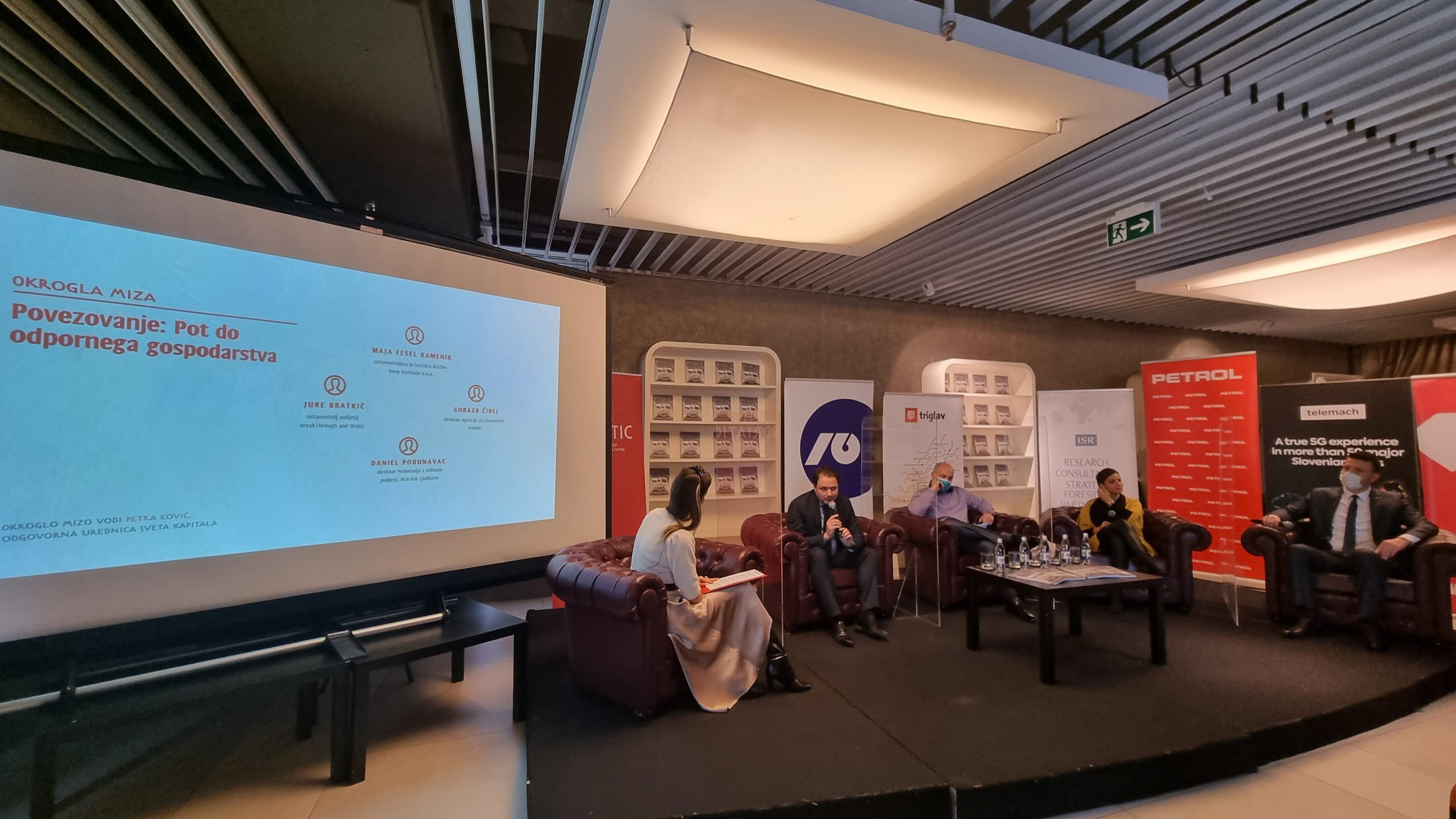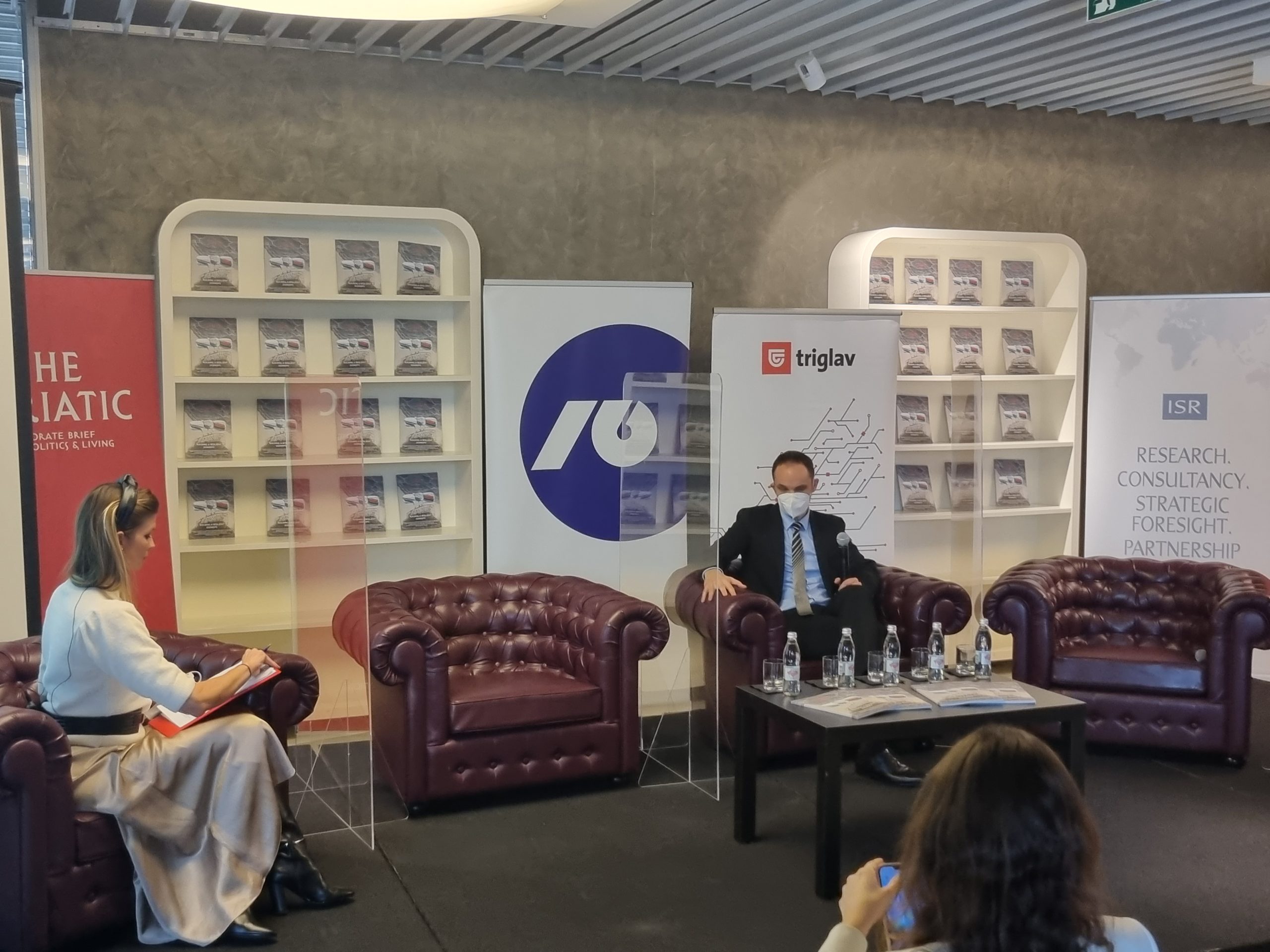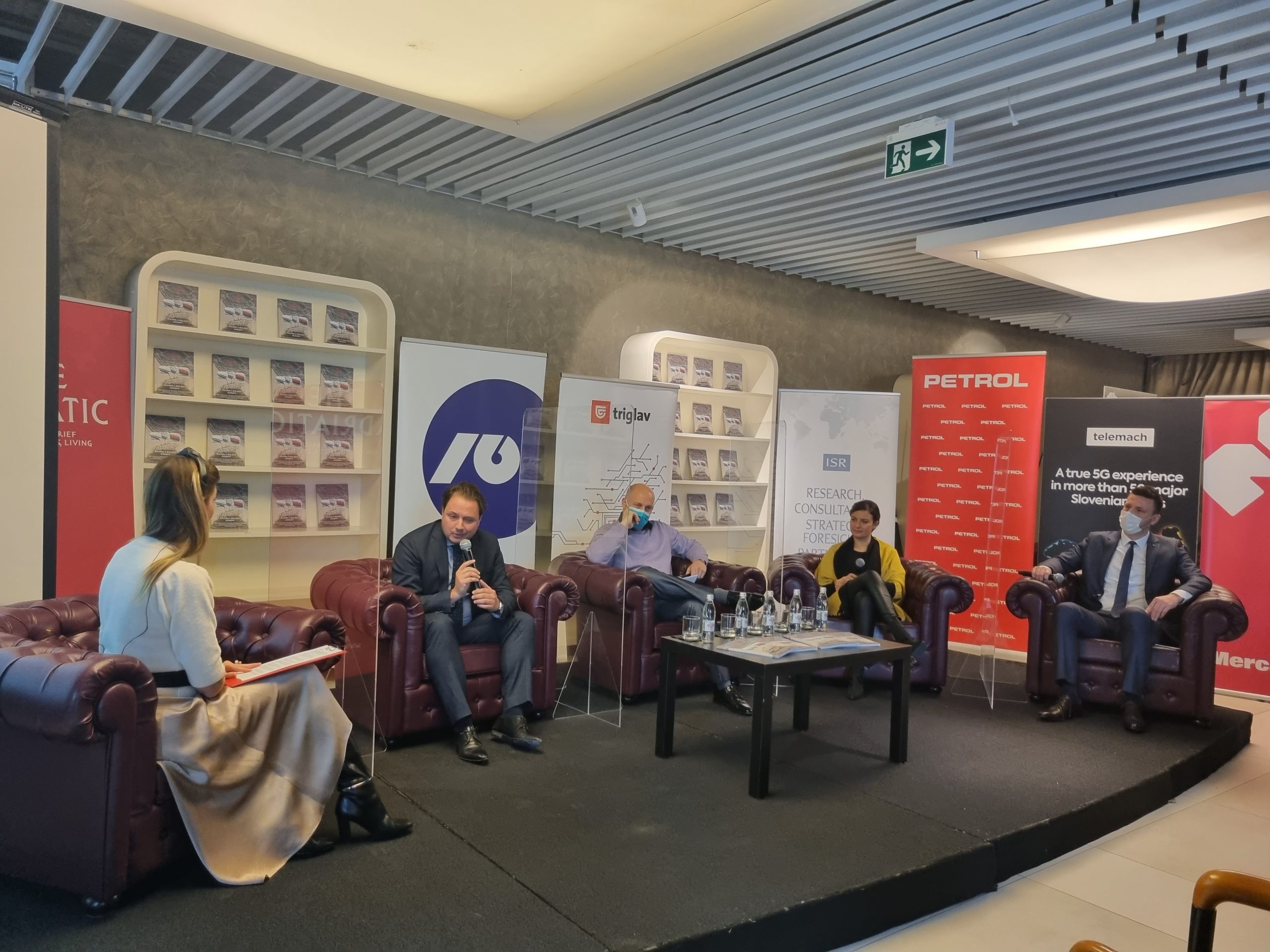A few Tips and Tricks from Slovenian Executives
How to navigate in 2022
editor
Jan Tomše
EXECUTIVE EDITOR AT THE ADRIATIC
According to projections, 2022 will be a demanding and turbulent business year. In the shadow of the economic growth and inflation uncertainties, the managers will have to decide wisely about the supply chain challenges, lie in wait for the most suitable talents they want to attract, and try to reimagine their business models. Not to mention the challenges that may emerge from the tighter access to funds should the central banks decide to impose stricter monetary policy.
We asked some of Slovenia’s top managers what should managers focus on in 2022 in order to effectively lead their teams and tackle the challenges in the rapidly-changing business environment.
Closely monitor the key areas. Closely monitor the business, decision-making and the social environment to understand the changes and risks and develop various scenarios for the future of your business.
Manage your costs and take care of your supply chains. Control the prices of raw materials and energy sources. Establish secure and reliable supply routes.
Invest even more in digitalization and automation. As these investments may seem incosistent with the premise of cost control, you will capitalize on them in the long term.
Make your business a pleasant place to be. Build work environment that encourages creativity, good relationships, and flexibility.
Be open-minded, learn constantly. Develop preparedness for the jobs of the future. Promote life-long learning. In the fast-changing times and digitisation, work processes constantly change. The never-ending investing in new knowledge, skills and experience is the prerequisite for preparedness for the jobs of the future.
Feedback. Try to get it regularly, so you know where to focus your efforts.
Practice agility. The pandemic era sparked a stream of uncertainties, that demand adaptation and quick decision-making and imposing changes.
Delegate wisely. You can’t do everything yourself – show your employees that you trust them by delegating accordingly.
Exercise transparency. Encourage transparency of and in all processes. Be generous to understand each other’s situation and promote usage of kind words. Moreover, sharing positive quotes can help in a significant way.
Promote change.
At the organizational level. Empower your management and employees to be open to change which helps you adjust your business to the scenarios that will unfold.
At the personal level. Take care of your emotional well-being and joy of life.
Focus on motivating people. People are the most challenging part of the business. Work on retaining the existing talents and onboarding the new ones. Motivate them properly, develop seperate motivation strategies for each one of them.
Encourage solidarity within the team. Solidarity should not be a stranger to business environment. Nurture relationships within the team. Give feedback, celebrate wins. If you criticize, focus on the work, not the person.
We would like to thank the Slovenian managers who contributed to this advice:
Petra Juvančič, Executive Director, Združenje Manager – Managers’ Association of Slovenia
Gorazd Čibej, Managing Director, Insurance Supervision Agency
Karmen Dietner, President of the Management Board, Poklojninska družba A, d.d. Nada Drobne Popovič, President of the Management Board, Petrol d. d.
Andrej Lasič, Executive Director, NLB d. d.
THE ADRIATIC
This article was originally published in The Adriatic: Strategic Foresight 2022.
If you want a copy of our annual magazine, please contact us at info@adriaticjournal.com.
Is the Open Balkan Initiative Light at the End of the Tunnel?
Strategic Foresight
editor
Faris Kočan, PhD
JOURNALIST AT THE ADRIATIC
In 2003, the idea of the European integration of the Western Balkans (WB) became the predominant political framework for managing the relations between the European Union (EU) and WB countries. 18 years later, this process is uncertain at least, while the region suffered “collateral damage” from a number of European internal crises (e.g. Ukrainian crisis, Refugee crisis, Brexit) which have prevented the EU to act more decisively and with a common voice.
In the last two years, the EU has adopted several documents1 that signal the preparedness to meaningfully engage with the region. However, recent developments such as the Bulgaria’s veto to North Macedonia’s EU accession talks amidst North Macedonia’s ”rocky road” towards fulfilling the enlargement requirements, has again raised questions regarding the future of the EU enlargement process. One thing is sure – the economic part of the cooperation is alive and kicking. The Economic and Investment Plan for the WB, which will generate up to €9 billion in the next six years, is something that the WB countries could use to enhance their own regional (economic) integration.
The most important domestic initiative is Open Balkan, a proposed economic and political zone consisting of Albania, North Macedonia and Serbia. Coming into force on 1 January 2023, the participating countries will open their national borders to each other’s citizens and products. The zone, which is mirroring the founding principles of the EU, should provide a platform for the eventual integration of the WB into the EU common market. If successful, it could provide a growth impetus for the whole region. This, in turn, would push regional relations towards more institutionalisation, and offer an opportunity for consolidating bilateral relations. Good neighbourly relations are widely seen as a precondition for a genuine transformation of a region still haunted by the memories of the worn-torn 1990s.
Slovenia: Just like in the year before, the general Investment Environment will remain moderately stable. The biggest risks to the general Investment Environment assessment are posed by public debt, tottering healthcare system, uncertain tax reform, accelerating inflation as well as property prices. The political environment is set to improve with general elections in spring 2022. It is widely hoped the contest yield the strong majority needed for passing socio-economic reforms.
Croatia: The Investment Environment in Croatia is improving, reaching the moderately stable mark due to the recovery measures and the stimulative economic climate put in place after COVID-19 crisis. In 2022, Croatia’s economy is forecast to further expand by 4.2%, continuing a strong economic recovery in 2021 (8%). At the Institute for Strategic Solutions, we will closely follow the announced tax reforms, which have the potential to stimulate domestic consumption and ease existing corporate tax burden.
Serbia: Coupled with robust investment growth, better economic indicators are driving overall improvement in Serbia’s Investment Environment, which can now be described as moderately stable. This is coupled by the country’s deficit reducing and improving debt-to-gross domestic product ratio, alongside the demand-boosting rise in pensions and salaries in the public sector. But the bright outlook could be marred by uncertainties regarding the bilateral relations with Kosovo, which is something to watch closely.
Bosnia and Herzegovina: At the Institute for Strategic Solutions, we estimate that the general Investment Environment is going to stay moderately uncertain. The political indicators will remain highly unstable due to the continuing non-cooperation on the state level. The situation could further deteriorate with the upcoming general elections scheduled for October 2022. This in turn could ‘lock in’ the current political crisis and intensify both the political and socio-economic risks until late 2022.
Kosovo: Kosovo is remaining moderately uncertain, mostly due to bigger socioeconomic and political risks. Such risks are associated with an anaemic economic recovery after COVID-19 crisis and the bilateral crisis with Serbia, which prevents meaningful dialogue between Pristina and Belgrade. Since this has a direct bearing on the ‘Open Balkan’ initiative, it should be watched closely.
North Macedonia: The Investment Environment is going to stay moderately uncertain amid the deteriorating political and security situation. Increasingly, social unrest has displayed both internal and external drivers; while internal dynamics have been triggered by the “fall” of Zoran Zaev, the external factors are inherently tied to ongoing bilateral tensions between North Macedonia and Bulgaria vis-á-vis EU integration. But it is the internal drivers which are the most worrisome for their spill-over potential. Indeed, they could determine the socio-political environment of North Macedonia in 2022.
Montenegro: While the Montenegrin Investment Environment is going to stay moderately uncertain, political indicators are deteriorating across the board. The political, religious and security situation remains tense after the 2021 violent protests in Cetinje. Concerningly, the political elites are fanning public discontent with hate-mongering statements. While such atmosphere is not expected to de-escalate completely in 2022, it is worth mentioning that the favourable Investment Environment is driving a general improvement in the country’s socio-economic situation. With 8.4-% economic growth, Montenegro is becoming a frontrunner in the region.
THE ADRIATIC
This article was originally published in The Adriatic: Strategic Foresight 2022
If you want a copy, please contact us at info@adriaticjournal.com.
The Western Balkans Can Create Global Champions, but Only if We Work Together
Economic Integration of Western Balkans
editor
The Adriatic team
The Adriatic team
The Institute for Strategic Solutions (ISR), in cooperation with the Serbian Chamber of Commerce, organized a conference titled Economic Integration of Western Balkans. At the event, leading businessmen from Serbia and Slovenia reflected on opportunities and challenges offered by closer collaboration in the Western Balkans, with an emphasis on cooperating practices between Slovenia and Serbia. They emphasized the importance of swift economic integration of the region into the European Union. There should be no doubt: this integration is the only way for the region to make a breakthrough and prosper. At the same time, the Western Balkans have a challenge to position itself as a single, 20 million people market, which can provide the region with a better starting point on other markets, agreed representatives of some of the largest regional companies, including NLB’s CEO Blaž Brodnjak, President of the Management Board of Petrol Nada Drobne Popović, General Manager of MK Group Mihailo Janković and General Manager of Nektar Group Nenad Miščević.
“I believe we need to create regional champions. What will we offer to our children in a region of 20 million people to keep them from going elsewhere? How are we going to keep them here?” were questions raised by Blaž Brodnjak. He added that bringing together leaders in the region is the key to establishing a Scandinavian model of cooperation, which he sees as very appropriate for the region. According to Dragan Marković, CEO of Triglav osiguranje Srbija, the better infrastructure is needed for closer integration of the Western Balkans into the European space that will attract foreign investment, as well as digitalisation and automation. He is convinced that the region must support this with appropriate educational programs.
Tine Kračun, the Director of ISR, said that Serbian companies have recently been among the largest investors in Slovenia, which shows that economic and other cooperation between the two countries is strengthening. “But there is a border between us. This is the EU border. It makes economic cooperation and logistics difficult. Regional cooperation can only be fully realised if the routes are modern and the borders are open for integration and trade.”
According to Mihailo Vesović, the Director of the Serbian Chamber of Commerce, the results of cooperation between Serbia and Slovenia in the past 10 years are visible. He emphasized the importance of working efforts for even closer mutual integration. “It is crucial that measures are taken to remove obstacles for even closer cooperation. The goal is to create free economic space on the model of, for example, European Free Trade Association (EFTA), which removes obstacles for cooperation between European countries.” He sees another advantage of closer integration of the region in the joint appearances of companies from Serbia and Slovenia in foreign markets, for example in Africa.
Blaž Brodnjak, President of the NLB Management Board, believes that the current generation of businessmen should not only have the desire but also the responsibility to connect the region more closely. “We need to create regional champions. What will we offer our children in a region of 20 million to keep them from going elsewhere? How are we going to keep them here? An important answer to this challenge is smart specialization,” is convinced Brodnjak. He added that bringing together leaders in the region, both from business as well as politics, is the key to establishing a Scandinavian model of cooperation, which he sees as very appropriate for the region.
Nada Drobne Popović, President of the Management Board of Petrol, is convinced that integration in the region cannot be fully realized if companies don’t perceive themselves as regional players. Petrol walks this talk. “We wish to invest in the potential in energy sector. We are strongly present in Slovenia and Croatia. In Serbia, we see great potential for additional growth in gas, hydrogen and investments in renewable resources,” she said. The President of the Management Board of on of the largest oil companies in the region also highlighted the personnel aspect of operating as a regional company: “We already have more employees outside Slovenia than in Slovenia, although we generate half of revenue in Slovenia. To be able to carry out the processes from home, we digitalised ourselves in 24 hours during the corona period. After the end of the corona crisis, we used this know-how to improve our processes. I believe that other countries are pleasant to live in, and we as a company must ensure adequate pay so that the workforce stays in the region,” said Nada Drobne Popović in a conversation moderated by Nikola Papak, representative of the Serbian Chamber of Commerce in Slovenia.
Every market in the region is relatively small, especially in relation to Europe, but if we perceive the region as one market, this changes, said Mihailo Janković, CEO of MK Group. “We depend on each other. It is not enough to recognize the region as a single space, we must act like it as well. Our company is present both in the EU and in the region. We are proving that not only EU companies are welcome in Slovenia, but also that Serbian companies can be a good employer,” said Janković, emphasizing the importance of closer political integration into the EU, which is extremely important for the Western Balkans. MG Group sees great potential in Slovenia, with more than 200 million euros that have been invested in it so far – and with an additional 300 million euros of investment planned.
Marija Desivojević Cvetković, Senior Vice President for Strategy and Development at Delta Holding, says that in the region, in addition to the visible, there are also invisible borders, those in our heads. “It is clear that the only real path for the region is in the EU. Until that happens, states must act on their own. They need to establish a market that takes advantage of the same customer habits that undoubtedly exist thanks to a common past. “The Open Balkans initiative is welcome, but this process must be monitored by someone else. This could be Brussels. This way, the region will also catch up faster with the pace and direction in which the whole world is moving, “said Marija Dešivojević Cvetković.
“The right way is for this area as well as businesses operating in the region is to simplify everything they do as much as possible. Organizational structures, processes and other procedures. Just like in sports, you have to be fast in business. ”According to Nenad Miščević, CEO of the Nektar Group, a global company that is also present in Slovenia with its ownership in Fructal. Companies today have one common challenge, and that is inflation; Nektar Group, which operates in the food industry is of course also faced by it. “We cannot pass on the higher costs entirely to consumers. The company must also look for internal optimization and reserves,” pointed out Miščević, adding that they want to position Fructal as a premium brand in the food and beverage industry in the future.
Dušan Miličević, CEO of Comtrade Group, put the characteristic of resourcefulness in the region at the center of his thoughts. “The creativity this space possesses and which is very pronounced, for example, in sports, should be better used in the economy.” He pointed out that Serbia is among the leaders in the world in terms of the share of companies using cloud IT solutions. Integration seems extremely important to him. “We have to look at the region as one space and adjust the processes and the way we operate,” said Miličević.
Dragan Marković, CEO of Triglav osiguranje Srbija, presented his views on the integration of the Western Balkans from the point of the insurance industry. According to him, the first condition for closer integration is an even better infrastructure that will attract foreign investment. Marković also mentioned sustainable strategy and digitalisation as well as automation as important pillars. The region must promote these verticals through educational programs that adequately support the goals. “The insurance industry is an integral part of economic development. We must be prepared for the enlargement of the EU as best as we can be. During the corona crisis, it became clear that this region could help others as well. Serbia, for example, has donated the necessary vaccines to other countries.”
Slobodan Šešum, Acting Director-General of the Directorate for Economic and Public Diplomacy at the Slovenian Foreign Ministry, emphasized the importance of the region’s enlargement and integration into the EU to happen fast. It is the main export market for both Slovenia and Serbia. That is why it is important to remove the borders that hinder economic cooperation as soon as possible, is convinced Šešum, adding that a quarter of Slovenian companies plan to invest in Serbia and Croatia as well as in other countries in the region.
NLB Makes a New Contribution to the Region’s Integration
Building a resilient economy
editor
THE ADRIATIC STAFF
NLB connects South East Europe as one of the region's leading banking houses, and now it has added sports to the mix. NLB has become a sponsor of the ABA Basketball League. "We have found a regional partner in the league and the opportunity to confirm our commitment to the development of the region with this sponsorship. Basketball is the team sport that has written the most resonant and inspiring stories in the region," NLB comments on the newly-established partnership.
The NLB Group is joining the ABA League in the 2021/22 season and the cooperation between the two regional players, who are both leaders in sports and banking and financial sector will continue until at least 2025.
By entering this region’s most powerful basketball competition as a sponsor, the NLB Group has also become the general sponsor of the second division competition under the auspices of the ABA League which will from now on be called NLB ABA LEAGUE 2.
“We are more than just another financial group and as an institution of systemic importance we are not only interested in business topics exclusively. We want to create, enhance and connect the region of opportunities operated by the Group in various ways – also through sports. Basketball is a team sport that has written the most popular and inspiring stories in the region, telling us about winning and success, both with the national team and basketball clubs. By sponsoring the ABA League j.t.d., the NLB Group has proved once again that it knows the passion and desires of the region of opportunities, and that it speaks the same language and culture. Consequently, our Group understands and promotes what people in this region cherish. We are members of the same team. And the teamwork, bringing different communities, cultures and languages together to form a rock-solid whole, which is able to seize every opportunity through coordinated action, are the very values of the NLB Group,” said Blaž Brodnjak, CEO of the NLB.
Dubravko Kmetović, director of the ABA League: “On behalf of the ABA League j.t.d., I am happy and honoured to welcome (back) the NLB Group to our joint home of basketball. The NLB Group was with the ABA League j.t.d. at the very beginning, when this whole idea of a regional basketball league came to life, and I am extremely happy to have this renowned banking and financial group again by our side.
THE ADRIATIC
This article is part of The Adriatic: Strategic Foresight 2022 project.
If you want a copy of our annual magazine, please contact us at info@adriaticjournal.com.
When It Comes to Esg, the Sooner, the Better
Interview: Bogdan Gecić, the founding partner at Gecić Law
editor
Barbara Matijašič
JOURNALIST AT THE ADRIATIC
Environmental, social and governance (ESG) preparedness will have a pivotal impact on the future financing of businesses as well as on their cost of operations and legal compliance. Belgrade-based Gecić Law is the first independent law firm in the region to provide services in the field of ESG.
Gecić Law is a prominent regional law firm that helps clients navigate through the complex legal landscape of the region across multiple practice areas. It is especially known for its expertise in EU law and international trade. As countries of the region open new chapters in their EU accession talks, Gecić Law relies on its creativity and in-depth knowledge of both legal and key business issues when providing innovative and practical solutions in the most complex of matters. Gecić Law is the only regional law firm that has continuously represented clients in crucial matters before international institutions, including the European Commission, the Energy Community, the ECAA, and CEFTA.
We spoke to Bogdan Gecić, the founding partner at Gecić Law about the firm’s achievements and its strengths when advising diverse entities in the SEE region. He singled out innovation as the key ingredient to the firm’s success and the decision to expand into new practice areas such as ESG, one of the most pressing issues of our time. Gecić also shared his thoughts on how compliance with ESG demands may affect businesses and market dynamics in the region and beyond.
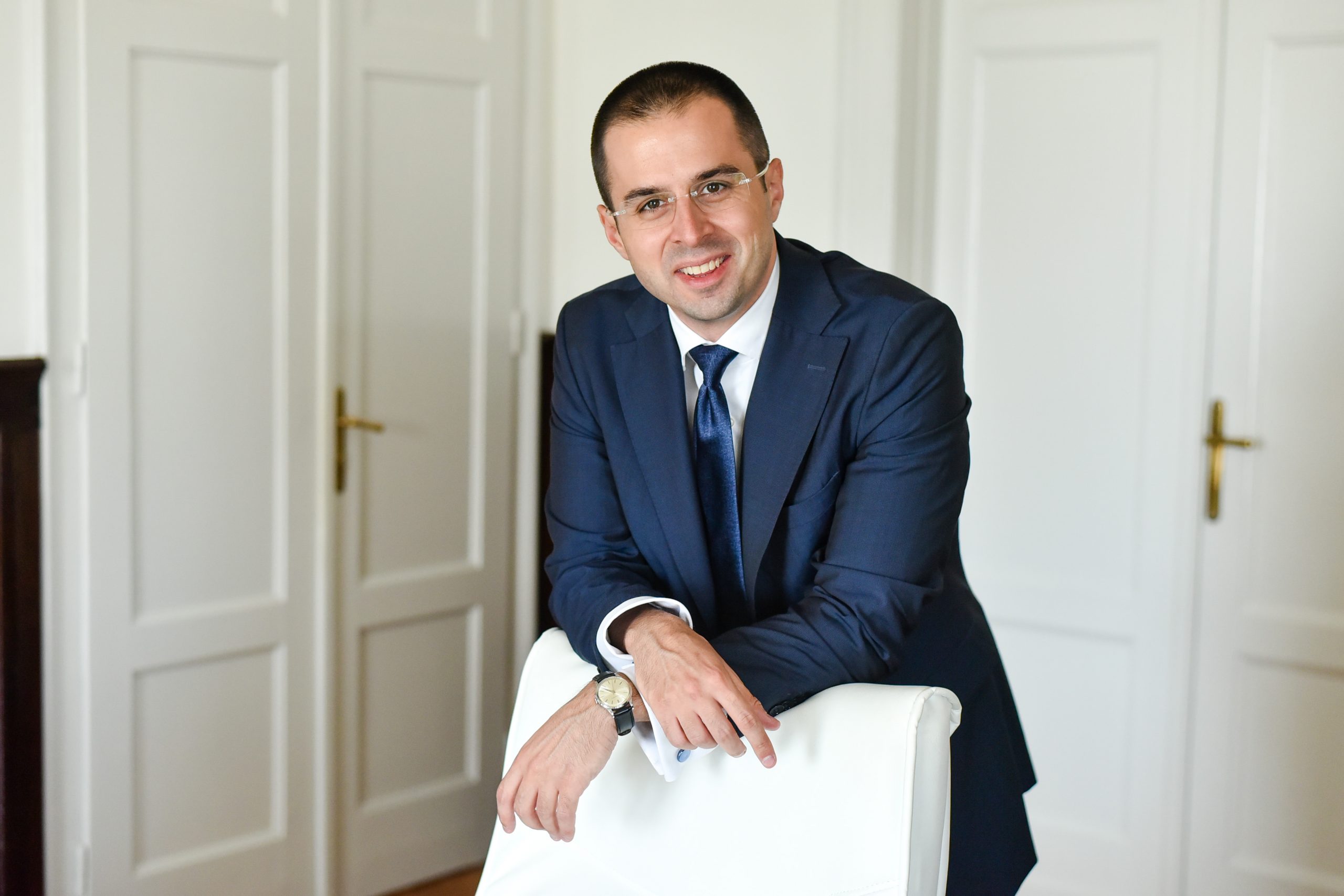
What are the main achievements you are proud of, and which are the key ingredients to the success of Gecić Law?
We are immensely proud of being named Law firm of the year: South Eastern Europe at The Lawyer European Awards 2021, in a new category encompassing a dynamic market of 150 million people, including Turkey and several EU members. This is not the first time we have been recognized by the preeminent judging panel, which includes experts from leading multinationals, such as Starbucks, GSK and Hugo Boss. Last year we were named Law firm of the year for Eastern Europe and the Balkans and we have repeatedly entered the European Competition or Antitrust Team of the Year – Top Five category, along with the most distinguished antitrust teams across Europe – for example together with Latham & Watkins, a team that represented Google. Our firm is also consistently recognized by elite global directories, including The Legal 500, Chambers and Partners and Benchmark Litigation.
The most important ingredient for our continued success is innovation, which is about continuous learning, discovery and adding value to our clients’ businesses. This leads us to expand into new practice areas, including ESG. We were the first independent law firm in the region to introduce services in this vital field. Forward-thinking global law firms, including Cleary Gottlieb, Clifford Chance and Linklaters have all understood the importance of ESG and we are glad to be in their company.
ESG is one of the most pressing issues of our time. How are the companies in the SEE region prepared for these changes? Can you point to the the winners of »the new era«?
Our clients usually know that they will have to face changes as part of the EU accession. However, they are not always abreast with how these changes may affect their businesses and what the dynamics may be. Another set of issues arise from trade with EU countries.
The Green Deal will bring several potentially ground-breaking challenges, including the carbon border tax, which may have far-reaching consequences for the regional economies. ESG preparedness will have a pivotal impact on future financing (e.g., Green Bonds) as well as on the cost of operations and legal compliance. Companies may be forced to adjust their business models to remain competitive. We provide holistic assistance and help clients incorporate ESG into their overall business strategies. Those who understand this well and act quickly will be the winners of the new era.

So how can law firms assist their clients during their transitions to ESG practicum? Does this support differ from market to market? How?
Our experience shows that most markets in the region face similar challenges with ESG. As we saw in Denmark, acting on climate change could increasingly become mandatory. Regional markets moving through the EU accession process may also have to comply with the new rules soon. As the ESG movement gains momentum, we aim to provide solutions tailored to the specific goals and needs of each business. We first assess and analyse the risks a client may be exposed to and then advise on how to best adapt, from a regulatory, strategic, financial and operational standpoint. In the implementation, we prioritize between the“must-have”and the“nice-to-have” but we do provide a clear roadmap for each area.
KEY TAKEAWAYS
Gecić Law aims to provide solutions that are tailored to the specific needs of each business: first by assessing and analysing the risks a client may be exposed to, and then by advising on how to best adapt – from a regulatory, strategic, financial and operational standpoint.
The sooner, the better. Some businesses still do not realize that failing to prepare may significantly affect their ability to compete in the market, sell their products and have access to financing.
Those who understand this well and act quickly will be the winners of the new era.
What are the key market challenges in ESG in the SEE? Can you specify the most important for the year ahead and how will you address them?
Many businesses have a short-term approach, seeing change as an additional cost, avoiding and postponing action. Some still do not realize that failing to prepare may significantly affect their ability to compete in the market, sell their products and have access to financing. Regulators, investors, creditors, customers, and other key stakeholders will insist more and more on responsible business conduct. We advise clients on EU rules on ESG that will define international trade in the years to come, impacting exporters and entire supply chains in the Western Balkans and beyond.
Nevertheless, our region is also showing remarkable progress, as major cities, including Belgrade, expand their supporting infrastructure to accommodate the latest environmental trends in personal mobility, waste management and renewable energy supply.
Last but not least – how does your own firm approach ESG practices?
We are thrilled to be part of this process, as we also take on board ESG standards. Wouldn’t it be completely inauthentic if we did not adhere to what we preach? We incorporate these principles into our core values and our everyday work. Our active and collaborative approach to making a positive contribution is reflected in our work with the Responsible Business Forum.
We are also a founder and proud supporter of the annual Taboroši Scholarship. We stand for an inclusive and diverse working environment, as we strongly believe that different perspectives and experiences enrich our business in a meaningful way.
THE ADRIATIC
This article was originally published in The Adriatic: Strategic Foresight 2022
If you want a copy, please contact us at info@adriaticjournal.com.
Keeping an Eye on Digital Future
editor
Maja Dragović
Maja Dragović
JOURNALIST AT THE ADRIATIC
Vlastimir Vuković, who took over the management Komercijalna Banka, member of the NLB Group, last February, rates relations between Slovenia and Serbia at an all-time high but wider regional cooperation is still lagging behind. He sees NLB Group as the pillar for regional growth, with the financing giant keeping an eye on the future with its latest venture of establishing its own IT Competence Centre in Belgrade.
Vlastimir Vuković, who took over the management Komercijalna Banka, member of the NLB Group, last February, rates relations between Slovenia and Serbia at an all-time high but wider regional cooperation is still lagging behind. He sees NLB Group as the pillar for regional growth, with the financing giant keeping an eye on the future with its latest venture of establishing its own IT Competence Centre in Belgrade.
Economic relations between Serbia and Slovenia are at its park, says Komercijalna Banka’s President of the Executive Board and, to back up the claim, he points to the trade between the two countries 10 years ago which stood at less than EUR 600m. In 2020, this figure doubled to EUR 1.2bn. And it continued to increase even this year, despite the pandemic, Vuković states.
“Up until the end of October in 2021 the trade between the two countries stands at almost EUR 1bn, an increase on the previous year of 1.4%.”
Slovenia’s position in Serbia remains high as it is among the top 10 leading foreign investors in the country. The figures, indeed, are impressive: approximately 400 Slovenian companies have invested in Serbia, there are around 1,400 Slovenian companies in the country that employ 15,000 people. On the other hand, Serbian investors in Slovenia are also increasing. There are currently around 2,000 companies with Serbian ownership, either through entities or private ownership.
Slovenia’s strongest presence is in the financial sector: two insurance companies operating on the Serbian market – Triglav and Sava – are Slovenian owned.
And then there are NLB Banka Beograd and Komercijalna Banka. The two are in the process of integration which is due to be finalised by the end of April 2022. Once this is completed, the two will become one of the leading banks in Serbia under the new name NLB Komercijalna banka, Vuković remarks.
“This is very important for the cooperation in general between the two countries: from the trade perspective, traveling between the two countries, and the cooperation between the people, economy, finance and government.”
ORGANIC THINKING
ORGANIC THINKING
Apart from finance, cooperation is quite strong in the ICT sector, too, especially with both Serbia and Slovenia putting a lot of focus on this industry and Vuković believes this will only increase.
Food and food processing are also closely linked to both countries, especially the organic production. NLB itself is committed to helping the sector.
“I’m very proud that NLB Banka Beograd and Komercijalna Banka had recently organised a competition for the organic food producers called NLB Organic,” says Vuković. “And this is a 10-year tradition now. We are promoting and rewarding people who are producing food organically. And we think this sends a very important message”.
Indeed, NLB Group’s commitment to sustainability goes much fur- ther: in Slovenia for example, NLB is the first bank to sign the global UN Principles for Responsible Banking.
“When approving funding requests, we tend to encourage the develop- ment of ESG projects and discour
age those who do not operate in accordance with the rules of sus- tainable development and circular economy”; says Vuković. “And this is as important a statement as it is to promote green energy and other aspects of sustainability.”
NLB Group is also recognising the importance of small and medium- sized enterprises (SMEs), helping them to grow their business by providing services, knowledge and advice, and with the #FrameOf Help project also paying for them to promote their products in the media. Such companies are crucial for both Serbia and Slovenia, observes Vuković, as SMEs “are the motor ofeconomies in both countries.”
JOINT REGIONAL COOPERATION
JOINT REGIONAL COOPERATION
Though trade and personal relations between Serbia and Slovenia are at an all-time high, both countries would benefit even more if broader regional cooperation improves, notes Komercijalna Banka’s President of the Executive Board.
Vuković sees great opportunity in “a joint regional presentation of the products and services, mainly in Europe, but also in the rest of the world”, arguing that one regional brand – like the Scandinavian model – on the European and global market would be stronger than numerous fragmented regional brands.
“When you see the Scandinavian trademark, you know that this is something which has been made with quality. We need to do something in that respect to have a trademark for this part of Europe. I see the cooperation possibilities across different sectors, such as food or energy. For example, we are producing food in Serbia, but we also need to process this to the market and place it in other regions. And if you cooperate on this with the EU partner like Slovenia, then you could easily approach the global market. With this kind of cooperation, I think we will do better.”
There is also a huge potential for cooperation in ICT industry, Vuković adds.
“I think this is one of the most important industries today in the world because each and every company needs to have an IT application, and everything is digitalized. So, in this respect we need to invest more, and in human capacity, too.”
Digitalisation will also aid businesses by helping to reduce bureaucracy and lengthy administration procedures in relation to border crossings in the region where there are a lot of borders.
“(The trucks) are waiting for days to enter or exit a country (in the region),” notes Vuković, which is also delaying the supply chain, he adds, citing chip shortages.
“If you want to buy a brand new car today in Serbia, you need to wait from six months to one year. This is the result of this crisis. So, in that respect, if we cooperate with the neighbouring countries, we could easily shorten the supply chain, rather than depend on distant countries. This is what has changed, I think, in reality in Serbia, the region and all over Europe.”
In that respect, he argues, Open Balkans initiative would help remove border crossing delays, but, he adds, “I think that with digitalisation we will not have the borders like we had in the past.”
NLB Group itself, he says, is “fully dedicated to easing the cooperation between companies in the region.”
The banking Group is a “very important pillar for cooperation because we are eight banks in the region and we are, in a way, a factor that connects economy and the people in the region. If, for example, you have a current account in one of the NLB banks in the region, everything is much easier: money transfers, favourable conditions, and you could also be connected with the people who are importing or exporting things.”
If you want to buy a brand new car today in Serbia, you need to wait from six months to one year. This is the result of this crisis. So, in that respect, if we cooperate with the neighbouring countries, we could easily shorten the supply chain, rather than depend on distant countries. Photo: Komercijalna banka
NLB GROUP COMPETENCE CENTRE
NLB GROUP COMPETENCE CENTRE
With the future very much dependent on investments in digitalisation, NLB is ensuring it remains competitive by setting up its own IT Group Competence Centre in Belgrade to develop digital applications for the Group.
“In terms of legislation for IT industry, Serbia is one of the most developed countries in the region and even in Europe”, Vuković explains the choice for the Centre’s location.
“It means that it’s very open for IT industry and IT experts, and we have very good examples of successful companies in Serbia that developed software and applications for companies all over the world.”
The other reasoning is that Belgrade is establishing itself as a regional IT hub, creating a good environment to attract IT talent.
“Today it’s very difficult to attract young IT experts to work in the bank or for the bank. So you need to find ways to attract and employ those people and in Serbia we have a lot of potential to get IT talents and to do this the right way.”
Attracting talent is one challenge. Keeping them is another, adds Vuković.
“This is something which you need to develop and have a bit of a different atmosphere than in the banks because young people, especially in IT industry, are not the people with ties and suits, they would rather work from home, they prefer flexible working times, things that give them space to create. And you will need to do everything possible to develop this kind of atmosphere within the bank or within the company which will be related to the bank.”
The 40 IT experts currently working in the Centre are developing digital banking applications which will be applied across the NLB Group, regardless of the country. Some customisation will need to be done
in terms of legislation, explains Vuković, but the applications will have the same look and feel across the Group.
“If you have a mobile wallet NLB Pay, it will be the same regardless of the country where you’re using it. If you are, for example, in North Macedonia, the ATM needs to be the same as it is in Belgrade. This is what the IT Competence Centre will bring to the Group and to the customers all over the region.”
“This is also the sign that the NLB Group will invest more and more in Serbia and the region.”
“I think in years to come the IT hub in Belgrade will become bigger and producing applications which will improve customer experience. Today customers are more demanding, they want fast, efficient applications and we need to perform to meet their expectations. I’m sure Belgrade is the right place to produce this.”
THE ADRIATIC
This article was originally published in The Adriatic: Strategic Foresight 2022
If you want a copy, please contact us at info@adriaticjournal.com.
About Our Front Page
The Adriatic: Strategic Foresight 2022
editor
Dark clouds are gathering on the horizon.
Waters are already rising.
But unlike the biblical flood story, there is no Noah in sight (nor Noa, for that matter, since it would be foolish to search for solutions within one half of humanity only).
He or she might have been assassinated, or merely character-assassinated on Twitter, that is, cancelled. Alternatively, his or her project might have failed to take off on GoFundMe. Instead, there is plenty of disagreement among safe-styled saviours. It is a conflict of vision.
Disagreements are raging about style when they ought to have dealt with substance. Debates are being re-opened again and again while they should have been settled a long time ago. Will 2022 finally bring agreement on the blueprint?
The front page illustration was created by Ciril Horjak
THE ADRIATIC
This article was originally published in The Adriatic: Strategic Foresight 2022
If you want a copy, please contact us at info@adriaticjournal.com.
Beyond Borders
Interview with Blaž Brodnjak, CEO of NLB Group
editor
Maja Dragović
JOURNALIST AT THE ADRIATIC
Iztok Lazar
PHOTOGRAPHER
“We need to accelerate the process of eliminating political borders and start building bridges,” says Blaž Brodnjak, NLB’s CEO, talking about the Balkan region that is still trying to leave the quarrels of the past behind. The finance veteran, who’s been at the helm of the regional banking giant NLB Group since 2016, believes the COVID-19 pandemic has created a once in a lifetime opportunity for the Balkan countries to put aside their differences and unite to work for the common good.
“We need to accelerate the process of eliminating political borders and start building bridges,” says Blaž Brodnjak, NLB’s CEO, talking about the Balkan region that is still trying to leave the quarrels of the past behind. The finance veteran, who’s been at the helm of the regional banking giant NLB Group since 2016, believes the COVID-19 pandemic has created a once in a lifetime opportunity for the Balkan countries to put aside their differences and unite to work for the common good.
“Geo-politically, geo-strategically, the cards have been reshuffled” notes Brodnjak. “Those who do not understand the challenge and exploit this opportunity, will simply be left behind. This is also true for our region. Global supply chains have been repositioning – a significant part of whatever has been produced in the Pacific-Atlantic basin has been moving back to Europe.”
Cost predictability and timely delivery are the main reasons behind the supply chain shift, and the countries in the region are extremely well-positioned to take advantage of this new paradigm, says Brodnjak.
“We are at the nexus of central Europe with the ports of Koper, of Rijeka, and so on,” he explains. “The entire region should build three vertical highway and railway connections to become a vital part of the new development axis of Europe. The Three Seas initiative is nothing else but connecting Adriatic and Black Sea ports with the North Sea, i.e. connecting the port of Gdansk with the ports of Koper, Rijeka, Split, Bar, Durrës, and others on the Adriatic coast and Greek and Black Sea ports to the Southeast. If approached consistently and decisively enough, this will connect Central Eastern Europe and Southeast European countries into one market and thus become the second vertical development axis of Europe with a population of more than a 100 million people.”
First and foremost, the NLB chief adds, “the governments need to understand this opportunity and work towards accelerating the construction of the productive infrastructure – roads, railways, energy efficiency projects, renewable energy production, and communication lines.” The business will then follow, he concludes.
Serbia, he notes, has recognised the challenge and the opportunity presented by the current developments and has shown enormous economic pragmatism, adding that the FDI influx in the country is really impressive and growing steadily.
“If you look at the foreign direct investment coming into Serbia in the past years, it’s really astonishing. Serbia has been the world champion in FDI per capita in 2018. And then in 2019, more has come in, and in 2021 even more than in 2019 – despite COVID-19.”
Driving south of Niš to North Macedonia, he says, new factories are being built at an incredibly fast pace. “This means there is a direct influx of capital which means exactly what I’m saying: the insourcing of supply chains back to Europe, while utilising the still a bit lower cost of talents in the Southeast Europe. If they deliver quality, they will also be able to significantly grow the export of production and services’ solutions, since there has been an obvious lack of talent in Central and Western Europe.” And in this respect, Brodnjak concludes, countries in the region offer a driving distance delivery that is pretty predictable in terms of “just in time” supplies.
DRIVING DISTANCE TOURISM
DRIVING DISTANCE TOURISM
When it comes to distance, the pandemic has also provided a new opportunity for destinations that are within the tourists’ driving proximity. There have been fewer flights in the last couple of years and Brodnjak doesn’t expect air travel to pick up dramatically even after the pandemic ends. “Flying will very likely not be so convenient, nor so cheap.”
He believes that in the future people will remain cautious and will seek destinations that are closer to home. This, in turn, he adds, represents a huge opportunity for the region that is already popular with tourists within a 1,000 km driving range. This year, for example, Croatia saw a significant increase of Polish tourists on its coast, recording over 1 m arrivals and over 6.6 m overnight stays from the Polish market. If this has happened in Poland, there are tangible opportunities to also attract more tourists from Germany, France, and the entire Eastern Europe, notes Brodnjak.
“This is now a high opportunity for us to be much more recognised as a target destination.”
But others are not sleeping on their laurels, so the region needs to act fast, warns the NLB boss. The time is ripe to invest in high quality services in remote places to meet the expectations of tourists in the future, he adds.
“Slovenian type of tourism is exactly shaped for something like that,” he says. “Let’s forget the massive coastal hotel resorts, and so on. If you look at the family businesses, farm estates, that’s exactly the gist of the future of tourism: sustainability. And if any country in the world is well-placed for it, it’s Slovenia. Moreover, if you look at the other countries in the region, it’s the same. Just look at the breathtaking beauties of Plitvice (in Croatia), or other national parks in Serbia, Bosnia and Herzegovina,North Macedonia, Montenegro, Kosovo, and Albania. Simply fantastic places. If proper investment is coming in to actually secure a sufficient level of quality of services and accommodations, we can become the new elite destination of the world.”
KEEPING PEOPLE AT HOME
KEEPING PEOPLE AT HOME
Working as one region and strengthening the economic ties in tourism, industry, or services will have a direct impact on people, improving their quality of life and, with that, says Brodnjak, address the issue that’s been plaguing the region since the break-up of Yugoslavia – the exodus of young and talented. “In 2018, a staggering number of people left the Slavonija region in Croatia,” Brodnjak points out. In Serbia, each year 51,000 people, most of them young, leave the country. In Bosnia and Herzegovina, the numbers are similar.
The pandemic has offered an opportunity to partially address this issue in the way of online working, observes Brodnjak. The possibility to work remotely, especially for scarce IT talents, has given the Balkan people the opportunity to work for any company anywhere in the world.
“This is good, since they earn decent salaries and spend or invest this money at home. In turn, this is developing local societies, and is not actually making these people leave their countries.”
“If we want to do business in this region, us as the businesses, we need to retain the people to whom we will be selling our services. We want and need a vital part of the population in these countries to feel well and stay with us.”
SECURITY FIRST
SECURITY FIRST
Ensuring economic success for all with a common agenda will also give a boost to overcoming political differences between the countries and help stabilise the region, Brodnjak continues.
“Why should we not build the bridge of business and talent opportunities with the free movement of talent, goods, and capital? That’s the spirit of the European Union and that’s the mechanism that secures and ensures peace in Europe. And the same can only be true for our region.”
Slovenia especially should not underestimate the importance of security in the southeast Europe. “Slovenes should not be thinking only of Western Europe, because if there are any security threats, they are coming from the South East, not from the West. In this respect, we need to stabilize this region. And, also from a purely Slovenian interest point of view, it is crucial that these countries are developing continuously and predictably, and there are no hostilities that result in overwhelming migration waves.”
Brodnjak also notes that Slovenia has overlooked the region for too long and should do much more to make the most of its opportunities there. But this should start at home:
“Slovenians have heavily neglected the region so far, the sheer fact that our children have not been learning Slavic languages of the region in schools is to me an unbelievable tragedy. This is our neighbouring region, where we Slovenians have traditionally had significant connections personally and in business terms.
There is enormous value in broader regional cooperation, from stability, security, but above all business and demographic stability point of view. It is clearly much easier and more effective to build relationships if one can interact meaningfully in the local languages rather than having to communicate in English or German.
We sing the same songs, many of us still cheer for the same teams. There is so much more connecting than dividing us, so let’s embrace the attitude of glass is half full and not half empty.”
POLITICAL LEADERSHIP
POLITICAL LEADERSHIP
For broader cooperation to take place, opening the borders among the SEE countries is a must, says Brodnjak, a veteran of the financial sector in the region, who has held managerial or supervisory roles in 17 banks in eight countries (among them all ex-Yugoslav ones).
But it will require consistent and decisive political leadership, he adds.
“This is all leaders of the region going together to Brussels, requiring a free economic zone. Only a bit more than 20 million (people) is barely enough as a critical mass to succeed locally, and then be able to have the critical mass to expand internationally.” What is more, he adds, “our traditional brands are still well recognised throughout the regional countries.”
Brodnjak believes that coming to an agreement on the open borders internally, within the region, will show the EU that SEE countries are able to come together on meaningful things. “And if they agree on that, then the political borders among the countries become irrelevant. This is why I have been stating the Open Balkan initiative is one of the most important initiatives in decades, firstly for the stabilization and prosperity of the region, and secondly as a message to Europe, “look guys we were able to agree on critical matters.”
SETTING AN EXAMPLE
SETTING AN EXAMPLE
He points to the ongoing disputes between Slovenia and Croatia – border, nuclear power plant, and foreign currency savings of Croatian depositors – as an opportunity to set the example for the rest of the countries in the region on settling differences.
“There is a task for the Slovenian and Croatian politicians to show the rest of the region that disputes can be resolved and differences can be overcome when working towards the common good. Let’s label (the border dispute) a bilateral agreement based on the arbitrage process. And let’s have it done.”
The two countries are also partners in the only nuclear power plant in the region and are working to settle disputes over the nuclear waste storage.
“We all know that without the second block of nuclear power plant, there is no sustainable energy production in Slovenia,” says NLB’s boss. “The same is true for Croatia, we both need the nuclear power plant in Krško, there is no debate. Slovenia is a heavily industrialised country, we need predictable supply of energy. There is no alternative to it, whoever speaks differently is just deceiving.”
Brodnjak also brings up the pressing issue of the foreign currency savings’ deposits of Croatian citizens in the former Ljubljanska banka that directly impacts the NLB Group.
“This is especially important for NLB, since without resolving this issue, we cannot enter the Croatian market,” he explains. “And if we entered it, we would become the regional platform. We would be the only financial institution covering all of the markets from ex-Yugoslavia, with a meaningful top-three position in six of them. Once we add Croatia, we will actually be supporting the businesses throughout the entire region as trade finance provider, as a payment and a support hub.”
The importance of resolving all of the current issues cannot be underestimated, remarks Brodnjak, as Croatia is Slovenia’s third most important trading partner.
“We cannot have these 30-year old disputes open any longer. We have to close them and move on, together. Together in Brussels, together in Moscow, together in New York, in London, everywhere.”
“We need to defend the interests of the region together because we are so interconnected. Almost half of Slovenians are vacationing in Croatia, Croatians are building businesses in Slovenia. They own trade, we own finance. There is so much value in this cooperation.”
The two countries together, he points out, is a combined market of 6.5 million, not a fragmented market of 2 million Slovenes and 4.5 million Croats.
“Adding the others through the Open Balkan initiative, we (can) create real value. Slovenia and Croatia need to show the path because we are the European Union members, so we need to be the guiding post.”
Slovenia ended its presidency of the European Council on 31 December and, for Brodnjak, it will be viewed as successful only if the country manages to come to an agreement with Croatia on the three open matters.
“This will be a message to everyone else: it is possible to resolve very hard issues among ourselves,” he contends.
For 2022, Brodnjak’s wish list is very clear: “I expect that the Open Balkan initiative is joined by the missing three – Montenegro, Kosovo, and Bosnia Herzegovina. And I expect Slovenia and Croatia to finally agree on legacy issues.”
THE ADRIATIC
This article was originally published in The Adriatic: Strategic Foresight 2022
If you want a copy, please contact us at info@adriaticjournal.com.
After the Annual Event in Ljubljana, We Continue the Path of Integration in Belgrade
Business Forum of Economic Integration
editor
The Adriatic team
The Institute for Strategic Solutions (ISR), together with the Serbian Chamber of Commerce, is organizing a business forum to present the 10th issue of The Adriatic: Strategic Foresight 2022. The Belgrade event is a continuation of ISR’s annual Ljubljana meeting that took place in January.
The business forum which will host a CEO round table will be held on February 2, 2022, at the Crowne Hotel in Belgrade.
As in Ljubljana in Belgrade, too, we will pay attention to the economic integration of the Western Balkans. The event is open to the public and is intended for those who follow the political, economic, and financial spheres – for everybody with an active interest in the Western Balkans region. See a full program of the event below.
If you want to join us in Belgrade, let us know at info@isr.si
Cooperation Leads to More Resilience and Economic Strength
ISR Annual event
editor
The Adriatic team
"Integration: The Road to a Sustainable Economy" was the focus of this years’ annual forum organised by the Institute for Strategic Solutions (ISR). Traditionally taking place in January, the event sees important decision-makers present their views on the economic and wider social challenges for the next twelve months ahead, both in Slovenia and the wider region. The 2022 edition explored the opportunities for Western Balkans countries to strengthen their economic cohesion and integrate into European connections.
“If it wasn’t for the EU, the fight against covid-19 would have been much harder. We found it easier to get funds, vaccines, and other help, to fight the epidemic. Therefore, it is also in the strategic interest of the Western Balkans countries to be connected to the EU. At the same time, it also is an opportunity for the Slovenian economy, which participates in the implementation of development projects in this region and thus grows,” remarked Anže Logar, Slovenian Minister of Foreign Affairs, in his keynote address to ISR’s 2022 forum.
After the pandemic had forced ISR to go fully digital in 2021, the 2022 event successfully reverted to the in-person format, enabled by high health standards at the venue and on-site testing. The event also saw the launch of this year’s edition of The Adriatic: Strategic Foresight. It is packed with up-to-date content on geopolitics, the economy, sustainability, and new business models, offering useful and useful reading to decision-makers in the Western Balkans.
“The year 2021 only further strengthened the realization that we can overcome the pandemic situation only through close cooperation, both economically and at the level of society at large, and with trust in institutions. This is the only way that reliably leads to economic recovery and prosperity. If we focus on the Western Balkans, integration, cooperation and closer integration into European connections are steps without which the region cannot grow and strengthen,” remarked Tine Kračun, ISR’s Director and Editor-in-Chief of The Adriatic. He highlighted how sustainability, which the EU had identified as the heart of its future development, was also one of the emerging challenges to regional integration.
THE ADRIATIC
This article was originally published in The Adriatic: Strategic Foresight 2022
If you want a copy, please contact us at info@adriaticjournal.com.

